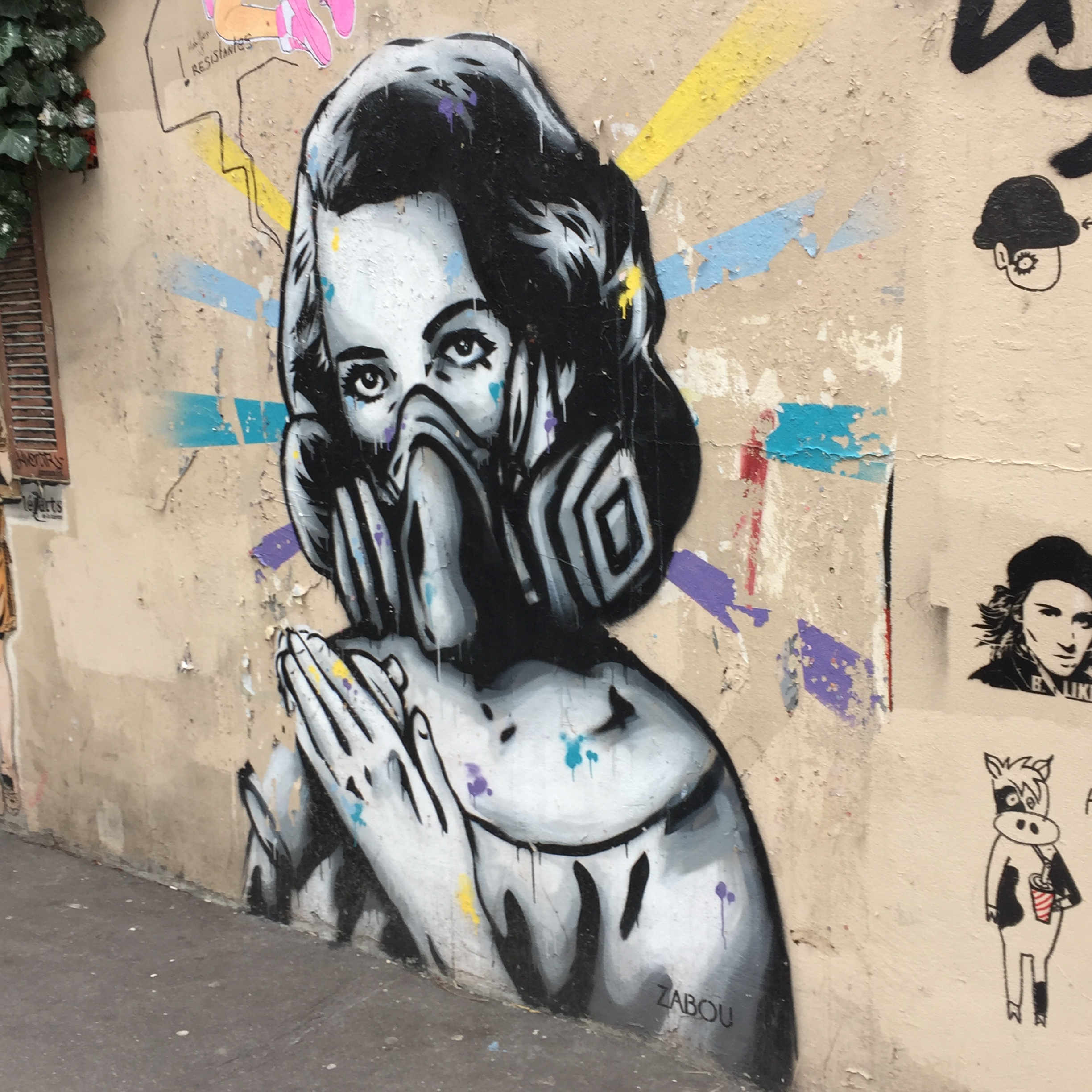
Photo released under CC-BY License
The Marxists Internet Archive's
RELIGION
Subject Section
Religion & Marxists, Socialists, Communists, and Anarchists
"Religion is the opium of the masses."
— Karl Marx, 1843
"...the criticism of religion is the basis of all criticism."
— Karl Marx, 1850
Resources on religion as viewed by the left.
- Background
- Leftist Movements and Atheism
- Socialism
- Marxism
- Leninism
- Stalinism
- Trotskyism
- Council Communism
- Christian Socialism
- Social Anarchism
- Christian Anarchism
- Labor Unionism
- Leftist Movements and Religion: Christianity
- Leftist Movements and Religion: Islam
- Islamic Tradition
- Indonesia
- Islamic Terrorism
- Sri Lanka
- Algeria
- Islamic, Communist Governments
- Islamic, Reactionary Governments
- ISIS
- India, Pakistan, and the Hindu-Muslim Conflict
- Iran
- Malcolm X
- Bosnian War (1992-1995)
- Arab Spring
- Palestine and Judaism / Israel / Zionism
- Leftism and Religion on Social Issues: Tolerance
- Tolerance and Christians
- Tolerance and Muslims (AKA: Islamophobia)
- Tolerance and Jews
- Tolerance and Communist China
- Leftism and Religion on Social Issues: Education
- Leftism and Religion on Social Issues: Art and Literature
- Leftism and Religion on Social Issues: Philosophy
- Leftism and Religion on Social Issues: Feminism
- Leftism and Religion on Social Issues: Secularism
- Leftism and Religion on Social Issues: Race
- Leftism and Religion on Social Issues: Science
Background
Religion is a natural force of conservatism, tradition, and the established power structures. For this reason, those who have wanted to change society have always come into conflict with the forces of religion. And this is certainly the case with the left: Marxists, Anarchists, Communists, and Socialists.
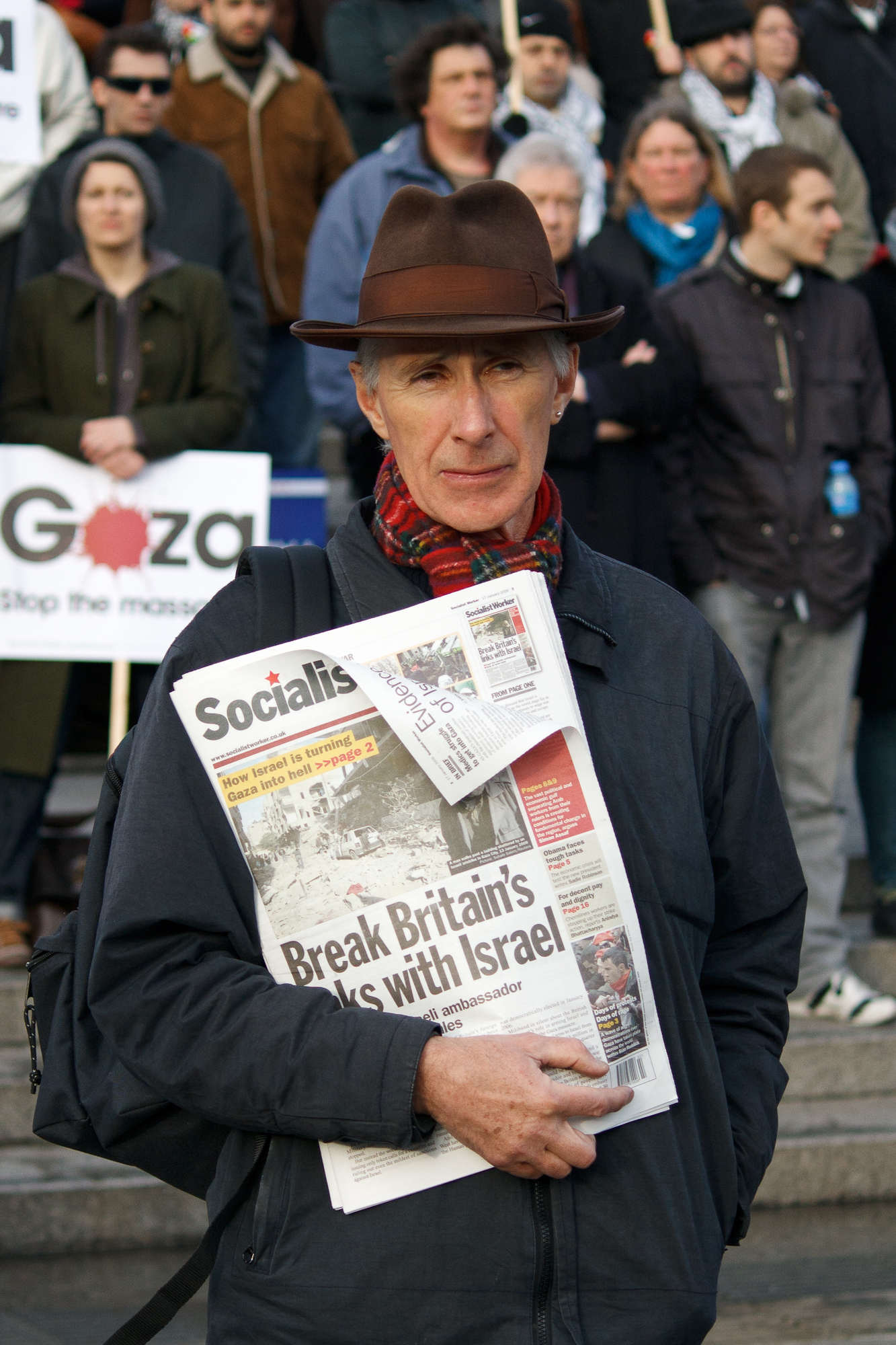
Photo by David Parry,
released under CC BY-NC-ND License
Leftist Movements and Atheism
Socialism
Early Socialists emerged at a time when Liberals, Communists, and Anarchists all began to posit a new way forward for humanity. And with a focus on mankind, many early Socialists adopted Atheism or, at least, something less conventional than the established religion.
• 1870-1875 — The Religion of Social-Democracy — Joseph Dietzgen
• 1879 — The Future of Religion — August Bebel
• 1884 — Socialism and Religion — E. Belfort Bax
• 1886 — The Religion of Socialism — E. Belfort Bax
• 1887 — Church Parades — E. Belfort Bax
• 1890 — The Decay of Pagan Thought — E. Belfort Bax
• 1894 — Socialism and Religious Beliefs — Enrico Ferri
• 1895 — “Religion” and Socialism — E. Belfort Bax
• 1896 — A Socialist’s View of Religion and the Churches — Tom Mann
• 1897 — The Eastern Question and the International Socialist Party — Christian Rakovsky
• 1899 — Socialism and Religion — James Connolly
• 1901 — Dechristianization — Jean Jaurès
• 1903 — Clericalism and the Socialist Attitude Thereto — August Bebel
• 1903 — Clericalism and Socialism — E. Belfort Bax
• 1904 — Wages, Marriage and the Church — Daniel De Leon, James Connolly
• 1905 — Christianity and Socialism — E. Belfort Bax
• 1907 — Maxim Gorky on Religion and Socialism — S.N. Preeve, Maxim Gorky
• 1910 — The Bankruptcy of Traditional Religions — E. Belfort Bax
• 1910 — Socialism and Religion — Socialist Party of Great Britain (SPGB)
• 1910 — Belated Prophets — Dora B. Montefiore
• 1910 — Labour, Nationality and Religion — James Connolly
• 1914 — The New Religion of the Possessing Classes — E. Belfort Bax
• 1918 — The Churches and Socialism — Dora B. Montefiore
• 1928 — Church, School, and Press — George Bernard Shaw
• 1930 — Why I am an Atheist — Bhagat Singh
• 1958 — Religion and Social Revolt — Cliff Slaughter
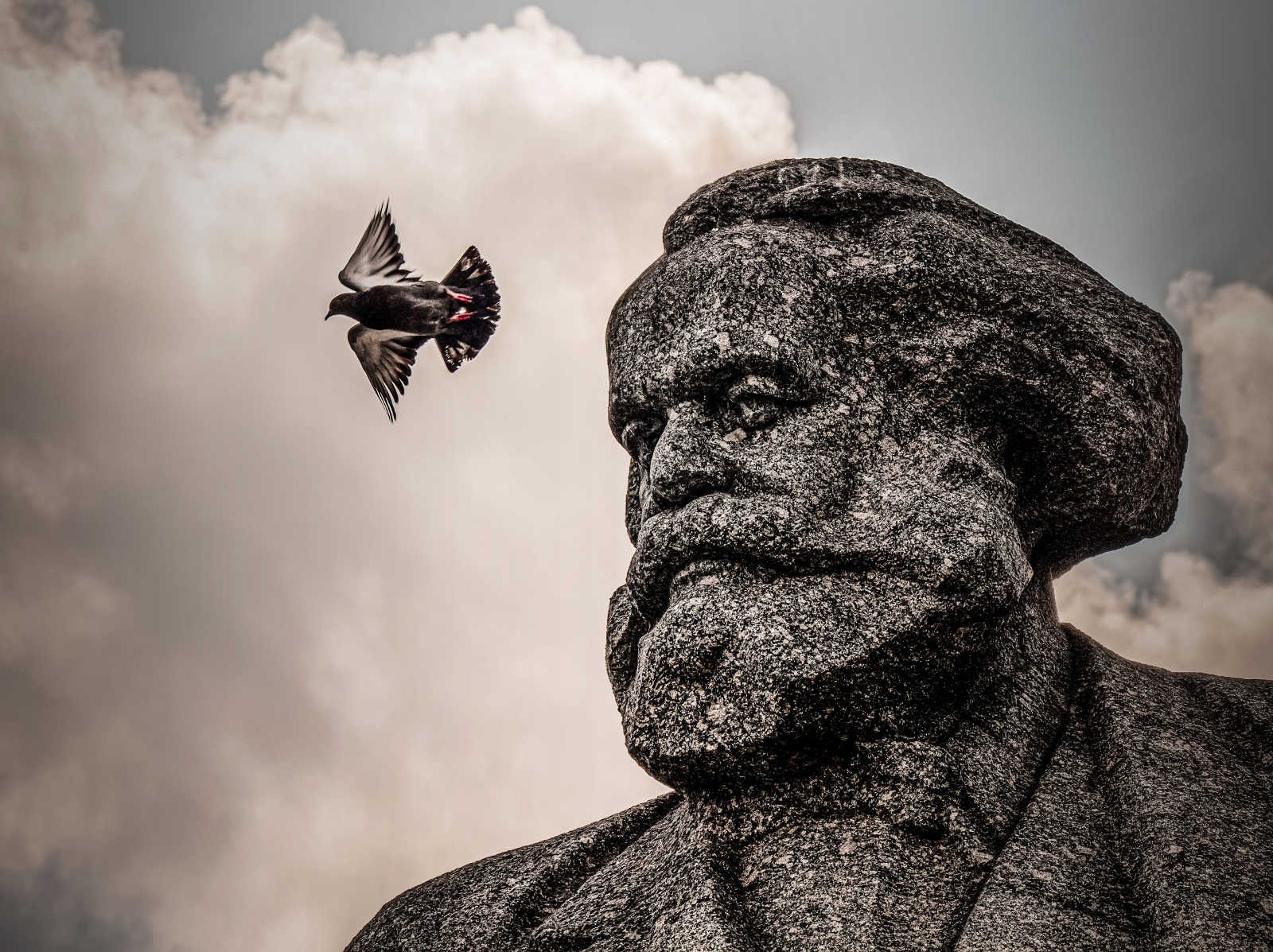
Photo by Txetxu.,
released under CC BY-SA License
Marxism
Karl Marx is known for the quote "Religion is the opium of the masses." Like many others of the Left, Marx was an Atheist.
• 1843 — Introduction to Critique of Hegel’s Philosophy of Right — Karl Marx
• 1844 — Articles for The New Moral World by Frederick Engels — Frederick Engels
• 1845 — Religion and Philosophy of the Union — Karl Marx, Frederick Engels
• 1845 — The Holy Family — Karl Marx, Frederick Engels
• 1855 — Anti-Church Movement — Karl Marx
• 1881 — Engels To Jenny Longuet — Marx-Engels Correspondence
• 1882 — Bruno Bauer and Early Christianity — Frederick Engels
• 1883 — The Book of Revelation — Frederick Engels
• 1887 — Lawyers' Socialism — Frederick Engels
• 1894 — On the History of Early Christianity — Frederick Engels
• 1902 — Clericalism and Socialism — Paul Lafargue
• 1903 — Clericalism and the Socialist Attitude Thereto — Karl Kautsky
• 1904 — Synopsis of Lecture ‘Scientific Socialism and Religion’ — Georgi Plekhanov
• 1908 — Foundations of Christianity — Karl Kautsky
• 1909 — Kautsky's Foundations of Christianity — E. Belfort Bax
• 1909 — On Mr Guyau’s Book — Georgi Plekhanov
• 1909 — On the So-Called Religious Seekings in Russia — Georgi Plekhanov
• 1925 — Review of Kautsky's "Foundations of Christianity" — Jack Fitzgerald
• 1940s — Socialism and Religion — F.A. Ridley
• 1940 — Church and God-Manhood in Russian Religious Philosophy — Gregory Bienstock
• 1940 — Religion, War and Nazism — Edgar Hardcastle
• 1948 — A Debate on the Social Philosophy of Marxism vs. Catholicism — Max Shachtman & Father Owen Rice
• 1949 — The Evolution of the Papacy — F. A. Ridley
• 1949 — The Breath of Discontent: A Study in Bourgeois Religion — Christopher Cauldwell
• 1963 — Theism and Atheism — Max Horkheimer
• 2000 — Dialogue: “The War of Gods”: Marxism and Christianity — Michael Löwy and Terry Murphy
• 2003 — Why Marxists Are Atheists — League for the Revolutionary Party
• 2007 — Not Just Opium — Paul Blackledge
• 2008 — More than opium: Marxism and religion — John Molyneux
• 2008 — The God Question — Terry Eagleton
• 2009 — The full story: on Marxism and religion — Roland Boer
• 2011 — War on the Heavens: The Rise of the New Atheism — Terry Liddle
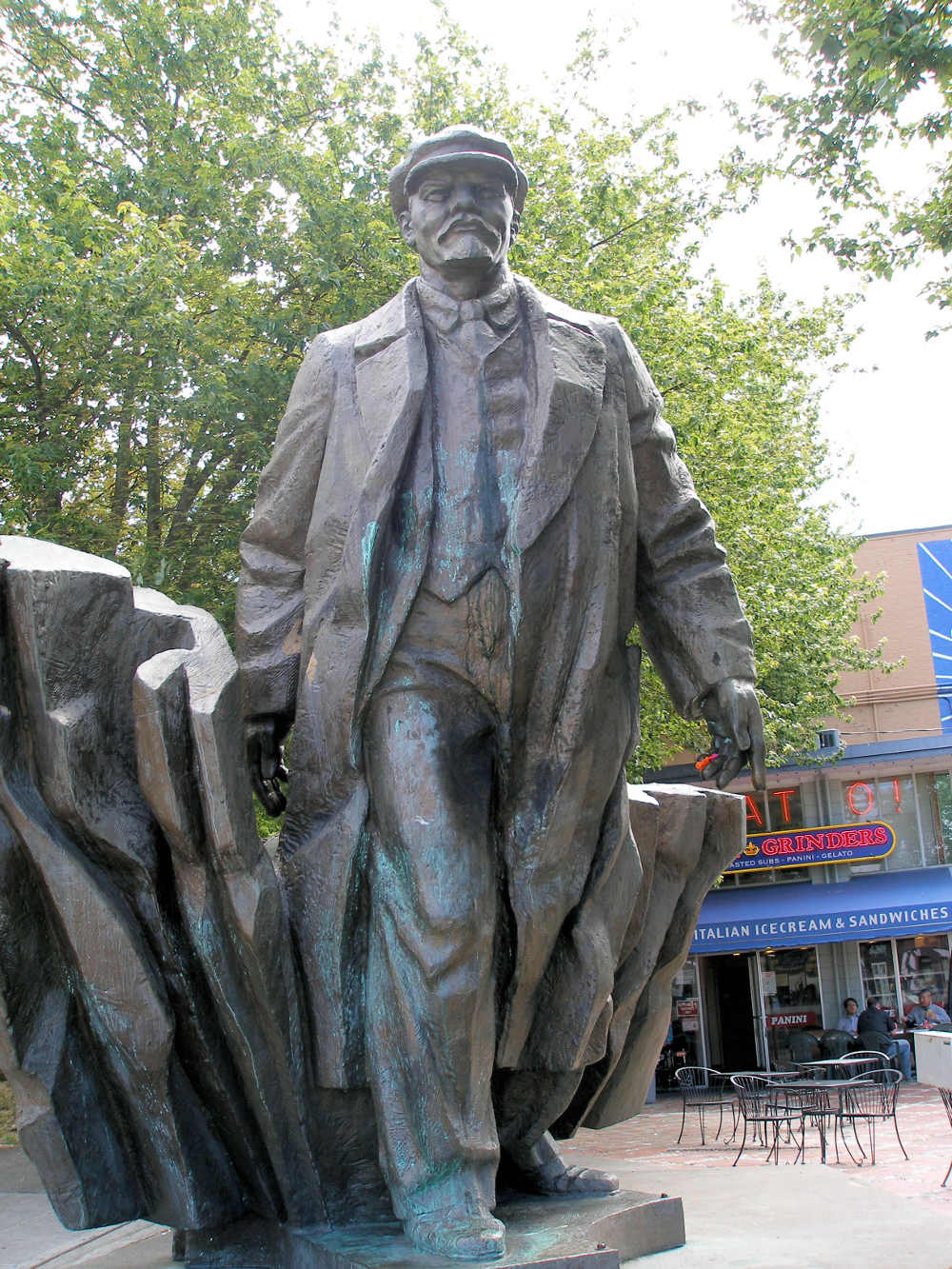
Photo by mcdlttx,
released under CC BY License
Leninism
The Soviet Union was the first state established with Atheism as its official creed, reminiscent of the Deist "Temple of Reason" established during the French Revolution. Leninists have almost always been staunch Atheists.
• 1905 — Socialism and Religion — Vladimir Lenin
• 1909 — The Attitude of the Workers’ Party to Religion — Vladimir Lenin
• 1909 — Classes and Parties in Their Attitude to Religion and the Church — Vladimir Lenin
• 1913 — Organisations of the Masses by the German Catholics — Vladimir Lenin
• 1918 — Communism, the Church and the State — A.K. Voronsky
• 1918 — The Decline of the Church — Louise Bryant
• 1919 — Church and School in the Soviet Republic — Nikolai Bukharin
• 1920 — Communism and Religion — N.I. Bukharin and E. Preobrazhensky
• 1922 — Bolshevism & Church Property — D. Ivon Jones
• 1922 — On the Significance of Militant Materialism — Vladimir Lenin
• 1923 — Tikon and the Russian Church — Louise Bryant
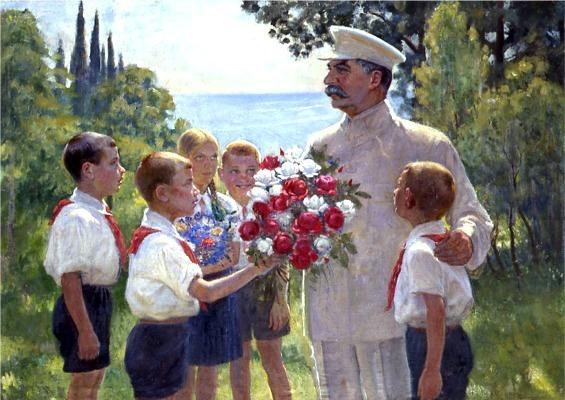
Photo by Roger Williams,
released under CC BY-SA License
Stalinism
• 1924 — Religion, Art and Marxism — A. Bogdanov
• 1924 — The Conflict Between Communism and Religion — Leslie Mason
• 1927 — Religion I and Religion II — August Thalheimer
• 1929 — The Struggle for the Russian Soul — William Henry Chamberlin
• 1930 — Finance Capital in Papal Robes: A Challenge! — Nikolai Bukharin
• 1933 — Red Medicine: Socialized Health in Soviet Russia: Religious and Civil Liberty and Law — Arthur Newsholme, John Adams Kingsbury
• 1936 — Soviet Russia and Religion — Corliss Lamont
• 1936 — What About Religion? — Earl Browder
• 1938 — A Message to Catholics — Earl Browder
• 1939 — Religion and Communism — Earl Browder
• 1943 — Religion and Reaction in Russia — Harry Young
• 1949 — Stalinist War on Church in East Is Not Over Religion but Power — William Barton
• 1949 — Anti-Catholic Drive Is On; Exile Government in Crisis — A. Rudzienski
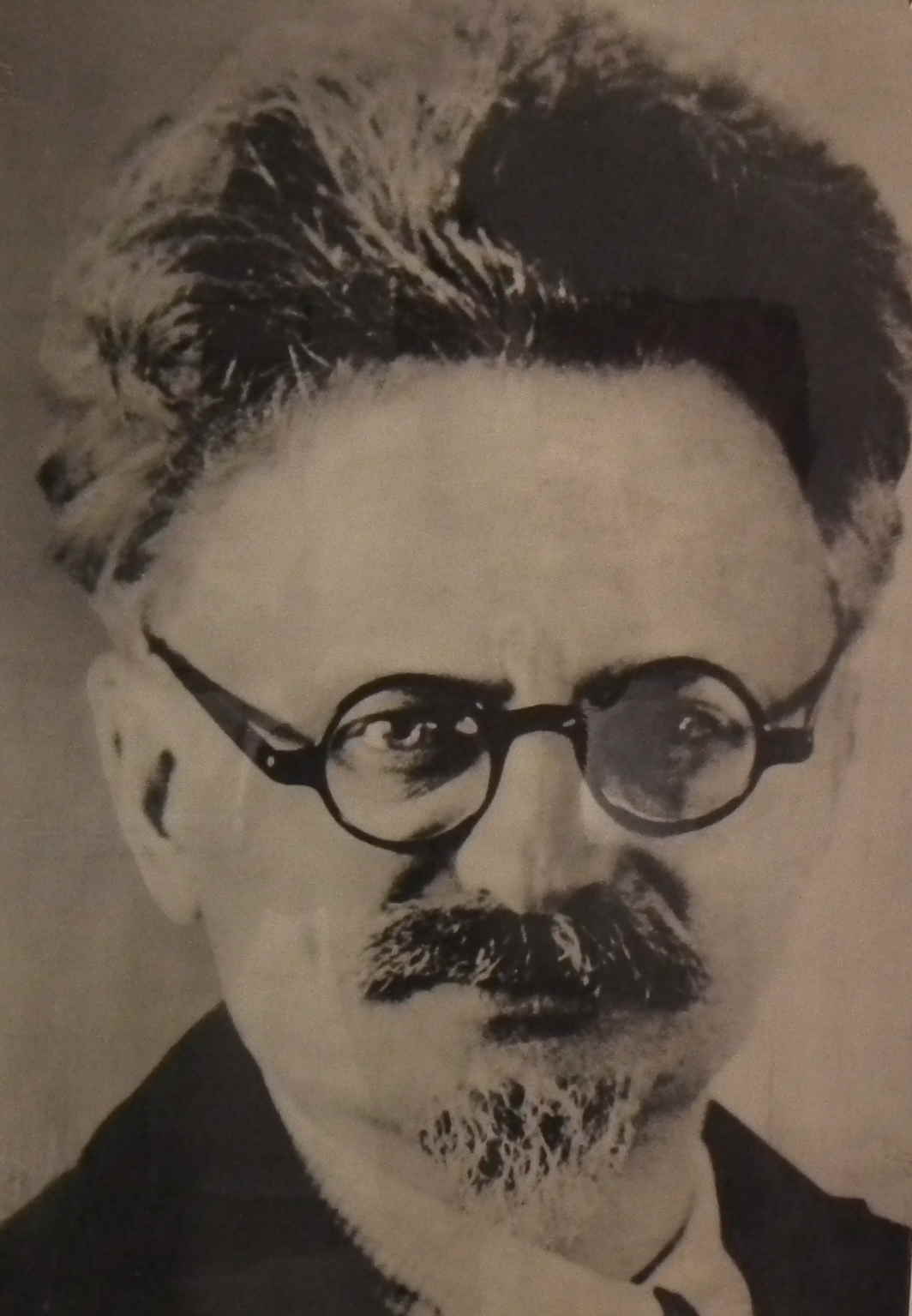
Photo by Nacho Facello,
released under CC BY-SA License
Trotskyism
• 1935 — Gods and Society — Felix Morrow
• 1936 — The Church Struggle Under Fascism — Leon Trotsky
• 1937 — Spanish Anti-Fascist Movement Slandered by Church Hierarchy — Felix Morrow
• 1940 — An Open Letter to Comrade Burnham — Leon Trotsky
• 1945 — Religion in the Soviet Union — Denzil Dean Harber
• 1960 — Viva Cristo Rey! — Albert Weisbord
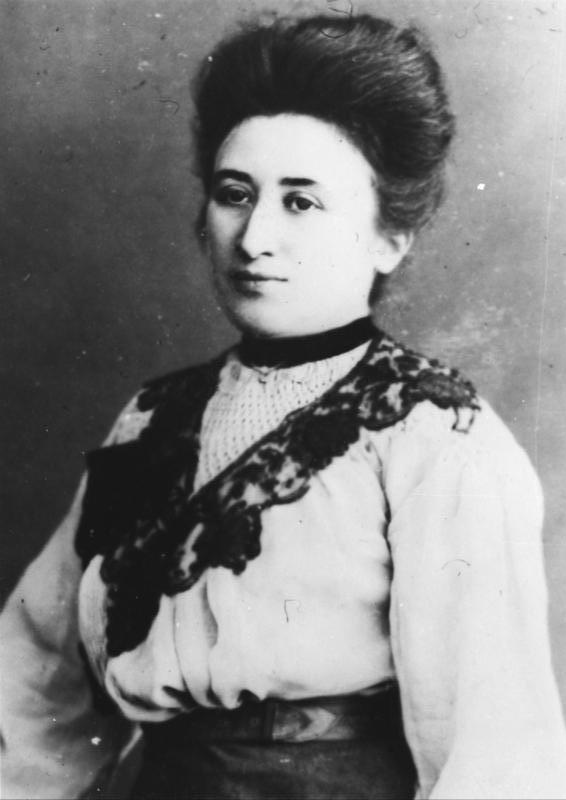
Photo released under CC BY-SA License
Council Communism
Council Communism was a movement that considered Bolshevik and Soviet Communism to be far too dominating, authoritarian, and party-centric, suggesting that a more Libertarian, socially-based Communism would be preferable.
• 1903 — An anti-clerical policy of Socialism — Rosa Luxembourg
• 1905 — Socialism and The Churches — Rosa Luxembourg
• 1907 — Socialism and Religion — Anton Pannekoek
• 1936 — Communism and Religion — Anton Pannekoek
• 1947 — Religion — Anton Pannekoek
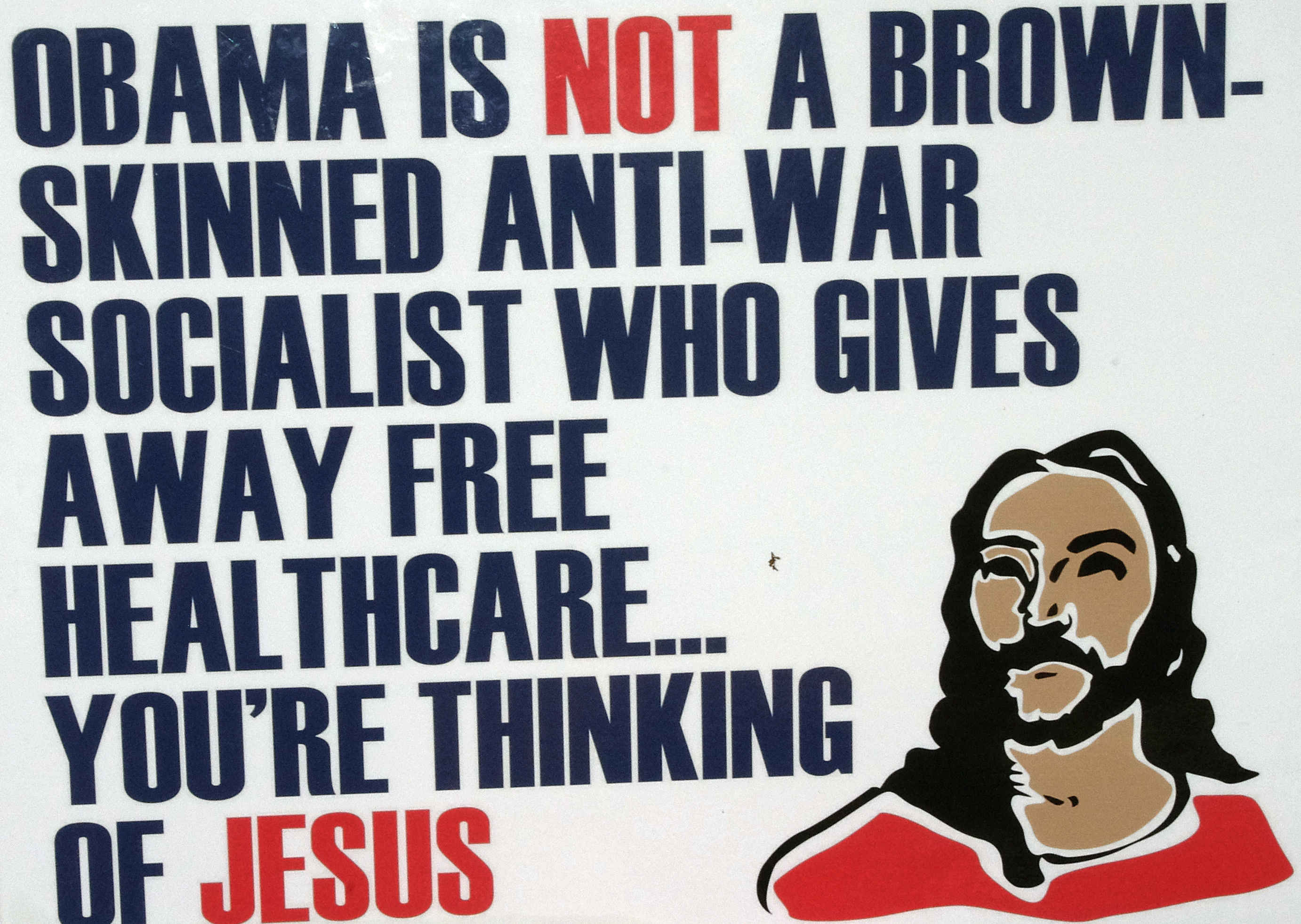
Photo by David Shankbone,
released under CC BY License
Christian Socialism
• 1903 — The Christian Socialist Fellowship: A Brief Account of its Origin and Progress — E.E. Carr
• 1906 — Consitution of the Christian Socialist Fellowship (1906) — Christian Socialist Fellowship
• 1909 — Consitution of the Christian Socialist Fellowship (1909) — Christian Socialist Fellowship
• 1964 — Social Christian Revolutionary Youth Condemns Persecution Against Haitians — Listin Diario
• 1970 — Marxism and Christianity: Are They Compatible? — Theodore Edwards & Rev. Blase Bonpane
• 2002 — Martin Luther King: Christian Core, Socialist Bedrock — Paul Le Blanc
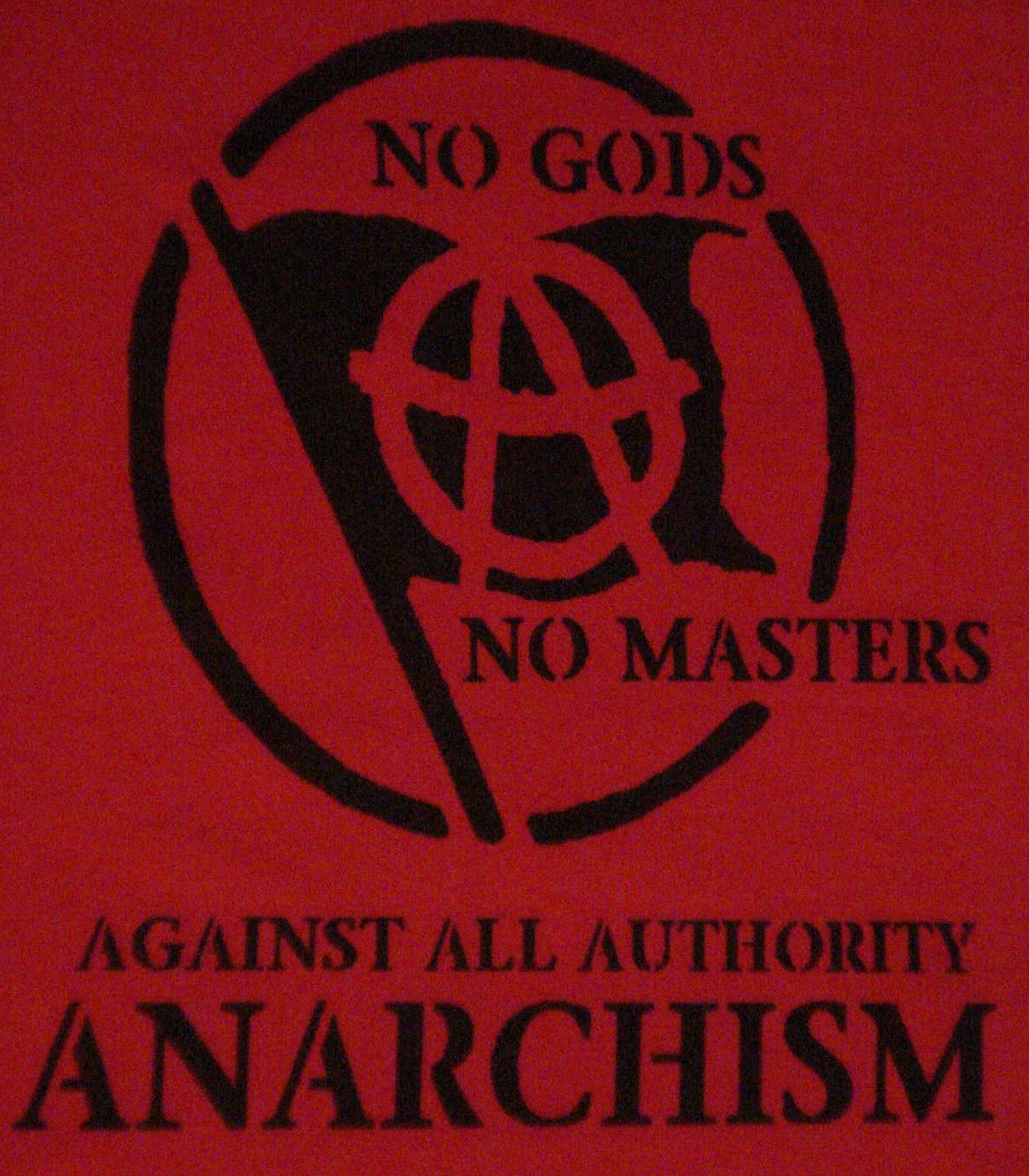
Photo by A Syn,
released under CC BY-SA License
Social Anarchism
• 1839 — The Celebration of Sunday — Pierre Joseph Proudhon
• 1849 — God is Evil, Man is Free — Pierre Joseph Proudhon
• 1849 — What is Government? What is God? — Pierre Joseph Proudhon
• 1871 — God and the State — Mikhail Bakunin
• 1880 — No More Cockroaches! — Léo Taxil
• 1880 — War on Clericalism — Léo Taxil
• 1890 — The Economic Tendency of Freethought — Voltairine de Cleyre
• 1907 — Free Inquiry — Paraf-Javal
• 1908 — Does God Exist?: Twelve Proofs of the Inexistence of God — Sébastien Faure
• 1909 — The Secular Priestly Spirit — Georges Palante
• 1913 — The Failure of Christianity — Emma Goldman
• 1913 — Dogmas Discarded — Guy A. Aldred
• 1916 — The Philosophy of Atheism — Emma Goldman
• 1922 — The Soviets and the Papacy — Andre Lorulot
• unknown — God or Labor: The Two Camps — Mikhail Bakunin
• unknown — The Commune, the Church and the State — Mikhail Bakunin
• unknown — Heresy — Sébastien Faure
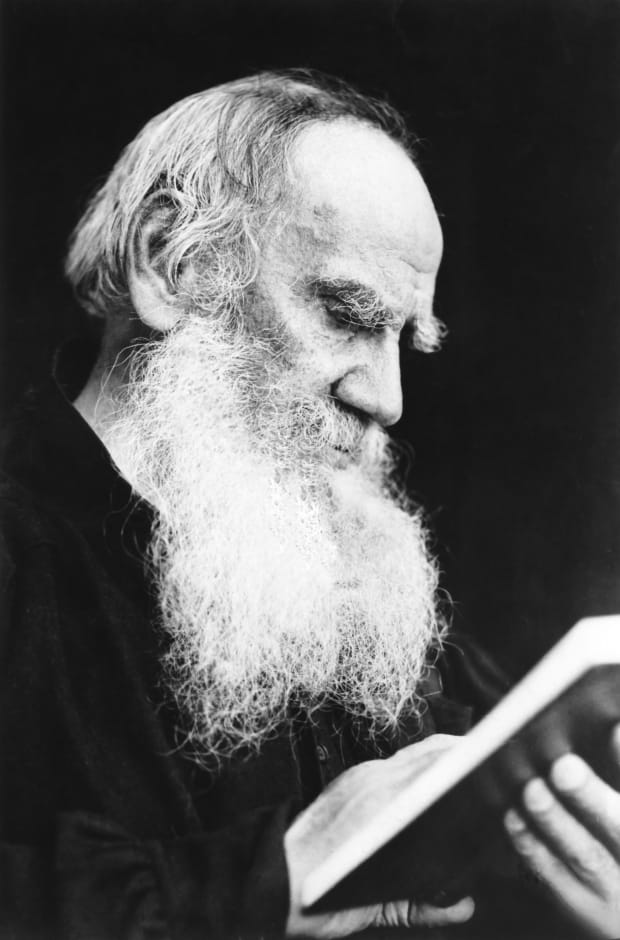
Photo released under Public Domain
Christian Anarchism
The Christian Anarchists (sometimes called "The Tolstoyan Movement") approached religion in a completely different way from others in the Left. Far from opposing religion, they embraced it whole-heartedly, although Tolstoy and his followers disbelieved in much of church dogma: the virgin birth, the immaculate conception, and the trinity were all absurd to the Christian Anarchists. They accepted the religion, but opposed the church hierarchy, as Tolstoy was excommunicated from the church during his life.
• 1882 — A Confession — Leo Tolstoy
• 1884 — My Religion — Leo Tolstoy
• 1885 — Where Love is, God is — Leo Tolstoy
• 1887 — The Gospel in Brief — Leo Tolstoy
• 1894 — The Kingdom of God is Within You — Leo Tolstoy
• 1894 — Patriotism and Christianity — Leo Tolstoy
• 1894 — Reason and Religion — Leo Tolstoy
• 1895 — The Christian Teaching — Leo Tolstoy
• 1896 — How to Read the Gospels — Leo Tolstoy
• 1896 — To God or Mammon — Leo Tolstoy
• 1899 — Resurrection — Leo Tolstoy
• 1900 — Religion and Morality — Leo Tolstoy
• 1900 — Thou Shalt Not Kill — Leo Tolstoy
• 1900 — Thoughts on God — Leo Tolstoy
• 1907 — Why the Christians are in such distress now — Leo Tolstoy
• 1908 — The Teaching of Christ Narrated for Children — Leo Tolstoy
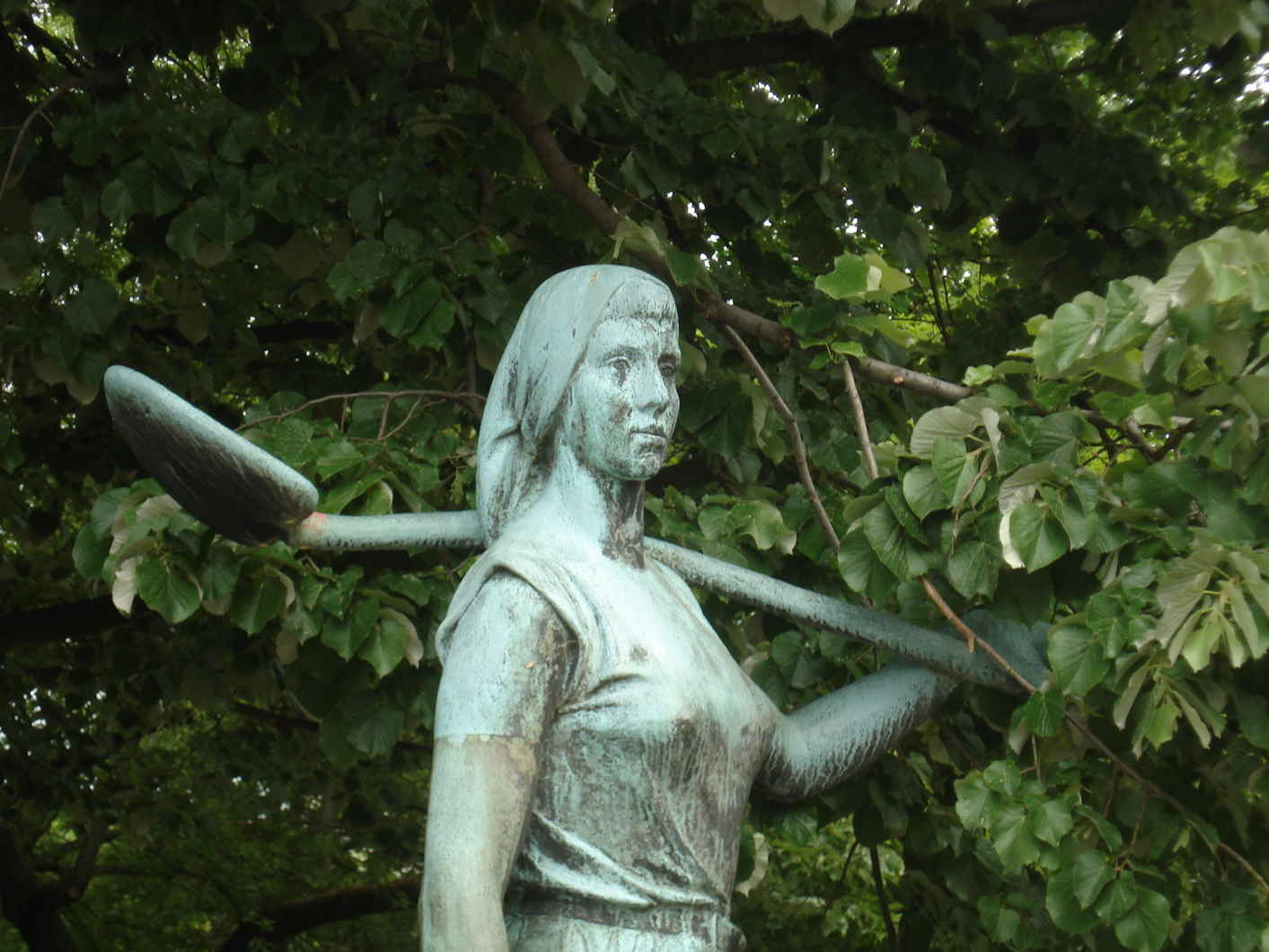
Photo by Baz,
released under CC BY-SA License
Labor Unionism
• 1889 — The Church and the Workingman — Eugene V. Debs
• 1896 — What Can the Church Do to Benefit the Condition of the Laboring Man? — Eugene V. Debs
• 1893 — The Teaching of Christ — Eugene V. Debs
• 1896 — Address to the Christian Labor Union, Sherman Street Methodist Episcopal Church, Milwaukee — Eugene V. Debs
• 1902 — Battle Cry of Superstition — Eugene V. Debs
• 1909 — Does God or the Church Change? — Eugene V. Debs
• 1909 — Socialism and the Church — Daniel De Leon
• 1910 — Prostitution of Religion — Eugene V. Debs
• 1911 — The Common Cause — Daniel De Leon
• 1914 — The Real Religion of Jesus Christ — Eugene V. Debs
• 1914 — Jesus, the Supreme Leader — Eugene V. Debs
• 1915 — Jesus, the Crucified Rebel — Eugene V. Debs
• 1915 — Real Religion and the Hypocrites — Eugene V. Debs
• 1931 — The Church and the Workers — Bennet Stevens
• 1942 — Labor Action Replies to Christian Science Monitor — Irving Howe
• 1945 — Paper of Catholic Unionists Is for No-Strike Pledge — Martin Harvey
• 1971 — Two Nations: A Reply to Brian Trench — John Newsinger
• 1972 — Protestant workers and the struggle for socialism — Peter Hadden
• 1973 — Protestant workers’ poverty — Peter Hunt
• 1976 — The Protestant Working Class — Des Derwin et al.
• 1986 — The protestant working class — Eamonn McCann
• 2000 — Race, Nationality And Religion In Australia: The Irish Catholics, the labour movement and the working class in the 19th and 20th centuries — Bob Gould
• 2007 — Muslim working class struggles — Bob Gould
• 2007 — Egypt’s strike wave — Sameh Naguib
• 2007 — Persian proletariat — Naz Massoumi
• 2008 — Inside Egypt’s mass strikes — Anne Alexander
• 2010 — Beyond the Troubles?: The Unionist State — Peter Hadden
• 2012 — Electricity workers in Lebanon strike back against casualisation — Bassem Chit

Photo by Terence Faircloth,
released under CC BY-ND-NC License
Leftist Movements and Religion: Christianity
The Catholic Church
If you need a summary of the Catholic Church in one sentence, here it is: you can be a Fascist, a Nazi, and a war criminal, and join the church, but being a Communist, Socialist, or Anarchist and joining the church is prohibited.
• 1850 — The Peasant War in Germany — Frederick Engels
• 1897 — To the Inquisitors of Spain — Fernando Tarrida del Marmol
• 1897 — The Inquisition in Porto Rico — Fernando Tarrida del Marmol
• 1899 — The Peasant War (Germany) — E. Belfort Bax
• 1903 — The Rise and Fall of the Anabapists — E. Belfort Bax
• 1904 — Socialism or the Catholic Church — Emil Vandervelde
• 1905 — The Protestant Ethic and the Spirit of Capitalism — Max Weber
• 1908 — Roman Catholicism and Socialism — James Connolly
• 1912 — Socialism and the Catholic Church — E. Belfort Bax
• 1913 — Catholicism, Protestantism & Politics — James Connolly
• 1924 — The Vatican — Antonio Gramsci
• 1925 — Catholicism and Socialism: Mr. Wheatley's Lie — Edgar Hardcastle
• 1935 — The Anti-Catholic Drive in Mexico — Jean Mendez
• 1936 — The Pope Needs America: Vatican Politics and the American Dollar — James T. Farrell
• 1937 — For Joint Action on Behalf of the Spanish People — J. R. Campbell
• 1940 — The Roman Catholic Church and the Modern Age — F.A. Ridley
• 1946 — The Vatican in World Affairs — Li Fu-jen
• 1949 — The Vatican’s New Line — Joseph Leonard
• 1949 — Sees Spellman Trying to Collect Reward for Vatican Aid in Europe — Mike Stevens
• 1949 — Sidney Hook:His New Friends in the Vatican? — R. Fahan
• 1949 — The Priests Bore from Within — Art Preis
• 1963 — The Bishop of Woolwich Squares the Circle — Pieter Lawrence
• 1964 — Adolph Hitler and the German Catholics — Constance Weisman
• 1995 — Blood wedding — Judy Cox
• 2006 — The pope as right-wing cultural warrior: And his loyal backstop, His Eminence George Pell — Bob Gould
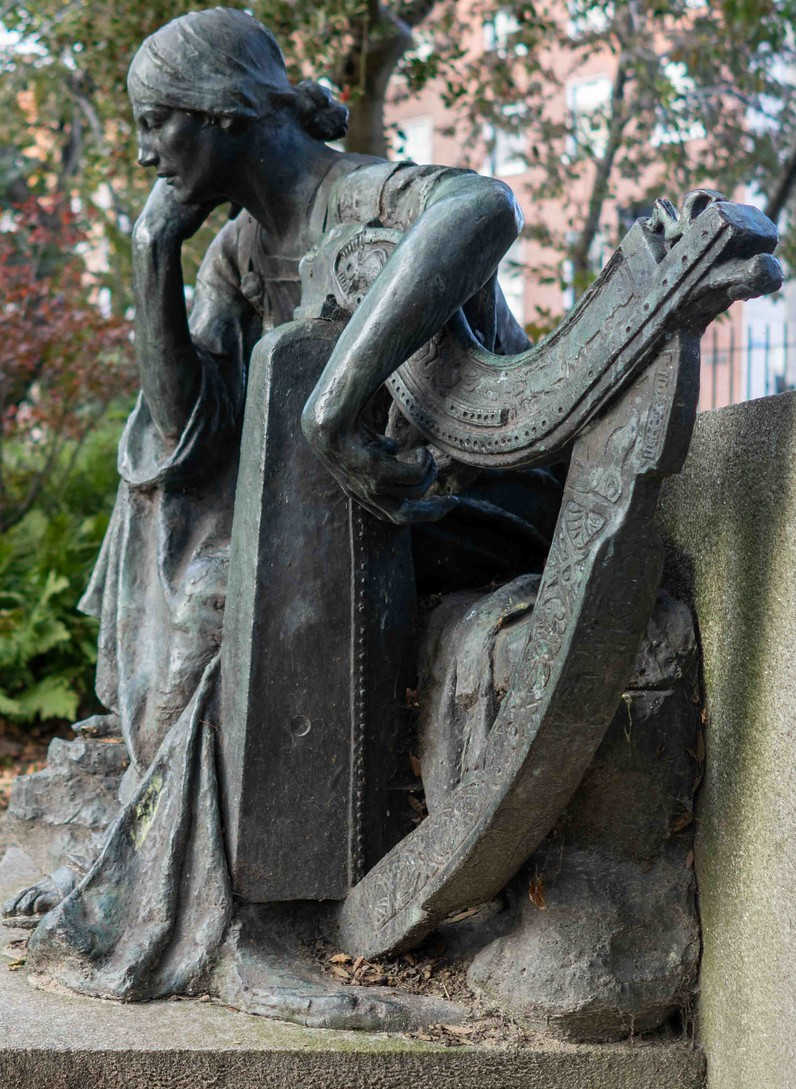
Photo by William Murphy,
released under CC BY-SA License
Ireland
Ireland has a unique, beautiful, and also tragic history within the history of Socialist movements. Like many other countries, while it was oppressed as a colonial possession, the workers' movements and the nationalists' movements intertwined and fought the same enemy, a foreign capitalist. But the alliance has always been tenuous.
• 1855 — Ireland’s Revenge — Karl Marx
• 1867 — On the Irish Question: Outline of a Report on the Irish Question to the Communist Educational Association of German Workers in London — Karl Marx
• 1893 — The Priest in Politics — Michael Davitt
• 1898 — Home Thrusts — Karl Marx
• 1910 — Sweatshops Behind the Orange Flag — James Connolly
• 1910 — Labour, Nationality and Religion — James Connolly
• 1911 — Socialism and Internationalism: A Reply to Friend Connolly — William Walker
• 1911 — Rebel Ireland: And Its Protestant Leaders — William Walker
• 1912 — The Controversy with Father MacErlean, S.J. — James Connolly
• 1922 — Ireland in the 20th Century — Karl Kautsky
• 1939 — Ireland and Ulster — V.F.
• 1945 — Ulster in Transition — Bob Armstrong
• 1968 — Derry: the grim facts about Ulster’s divide and rule city... — Paul Foot
• 1969 — Irishman who called for unity of 'the men of no property' — Chris Gray
• 1969 — Bogside – Saturday 19 April — Peter Hadden
• 1969 — Defend the Barricades — Socialist Worker
• 1969 — Build the Irish Civil Rights Solidarity Campaign — John Palmer
• 1970 — Northern Ireland: The New Orange Offensive — Sean Treacy
• 1971 — Trade Unions must fight internment — Peter Hadden
• 1972 — UDA Gangs and British Army fall out — Workers' Fight
• 1972 — The Two Nations Fallacy — Brian Trench
• 1972 — One answer, workers unity — Peter Hadden
• 1972 — On the IRA: Belfast Brigade Area — Jim Lane
• 1972 — Only working class can bring Irish unity! — Peter Hadden and John Throne
• 1972 — After 5 October 1968 — Eamonn McCann
• 1973 — Ireland is One! — Hammer & Steel Newsletter
• 1973 — Ireland – The Gathering Storm — Eamonn McCann
• 1973 — The Struggle in Ireland, What British Workers Should Know — Communist Unity Association (Marxist-Leninist)
• 1974 — The Ulster Unionist Party — George Johnston
• 1974 — Background to the Crisis: Northern Ireland — Chris Harman
• 1974 — A Communist View – Attack on BICO — Peter Hunt
• 1974 — Ireland and the British Crisis — Peter Harman
• 1975 — UUAC supports British Tory Party — Peter Hadden
• 1976 — Criticism of the CFB Resolution on Ireland — Encyclopedia of Anti-Revisionism On-Line
• 1976 — Trade unions can overcome sectarian murders — Peter Hadden
• 1977 — NILP and sectarianism — Peter Hadden
• 1981 — Provos out to Provoke Civil War — Peter Hadden
• 1982 — Northern Ireland – For Workers’ Unity and Socialism — Peter Hadden
• 1982 — One answer – workers’ unity — Peter Hadden
• 1982 — Some notes on Northern Ireland a year after the Hunger Strikes — Chris Bambery
• 1982 — Assembly elections – no hope for political stability — Peter Hadden
• 1983 — Sinn Fein move to the right — Peter Hadden
• 1983 — Provisionals – a blind alley for youth — Peter Hadden
• 1984 — The Missing Key — Chris Harman
• 1984 — For a democratic solution to the communal conflict in Ireland — Workers Socialist Review
• 1986 — Union silence leaves field open to sectarians — Chris Harman
• 1986 — The Anglo-Irish Agreement – A Warning to Labour — Peter Hadden
• 1988 — Dividing Ireland — Paul Foot
• 1994 — Across the divide — Mark McIvor
• 1994 — Ireland after the Ceasefire — Ted Grant
• 1995 — Are you being framed?: With the launch of the Frameworks for the Future document — Peter Hadden
• 1996 — On the edge of the abyss — Peter Hadden
• 1996 — Back from the Brink — Peter Hadden
• 1996 — Sectarianism returns as “peace process” crumbles — Peter Hadden
• 1996 — Rebuilding class unity — Peter Hadden
• 1996 — Where Studes Lonigan Came From — Patrick M. Quinn
• 1997 — Northern Ireland’s hidden history — Peter Hadden
• 1997 — Sectarian parties have no solutions: North starts to talk — Peter Hadden
• 1997 — Northern Ireland: Why we fight for working class unity — Peter Hadden
• 1998 — Northern Ireland’s Marching Season Crisis — Stuart Ross
• 2000 — 1969 Cabinet Papers — Peter Hadden
• 2002 — Towards conflict or peace? — Peter Hadden
• 2002 — Assembly collapse reflects growing polarisation — Peter Hadden
• 2005 — Towards conflict or peace? — Peter Hadden
• 2005 — Headed towards renewed conflict not peace — Peter Hadden
• 2012 — 100 Years of the Ulster Covenant — John Lyons
• 2013 — The State of Loyalism — Goretti Horgan
• 2015 — A ‘Carnival of Reaction’: Partition and the Defeat of Ireland’s Revolutionary Wave — Fergal McCluskey & Brian Kelly
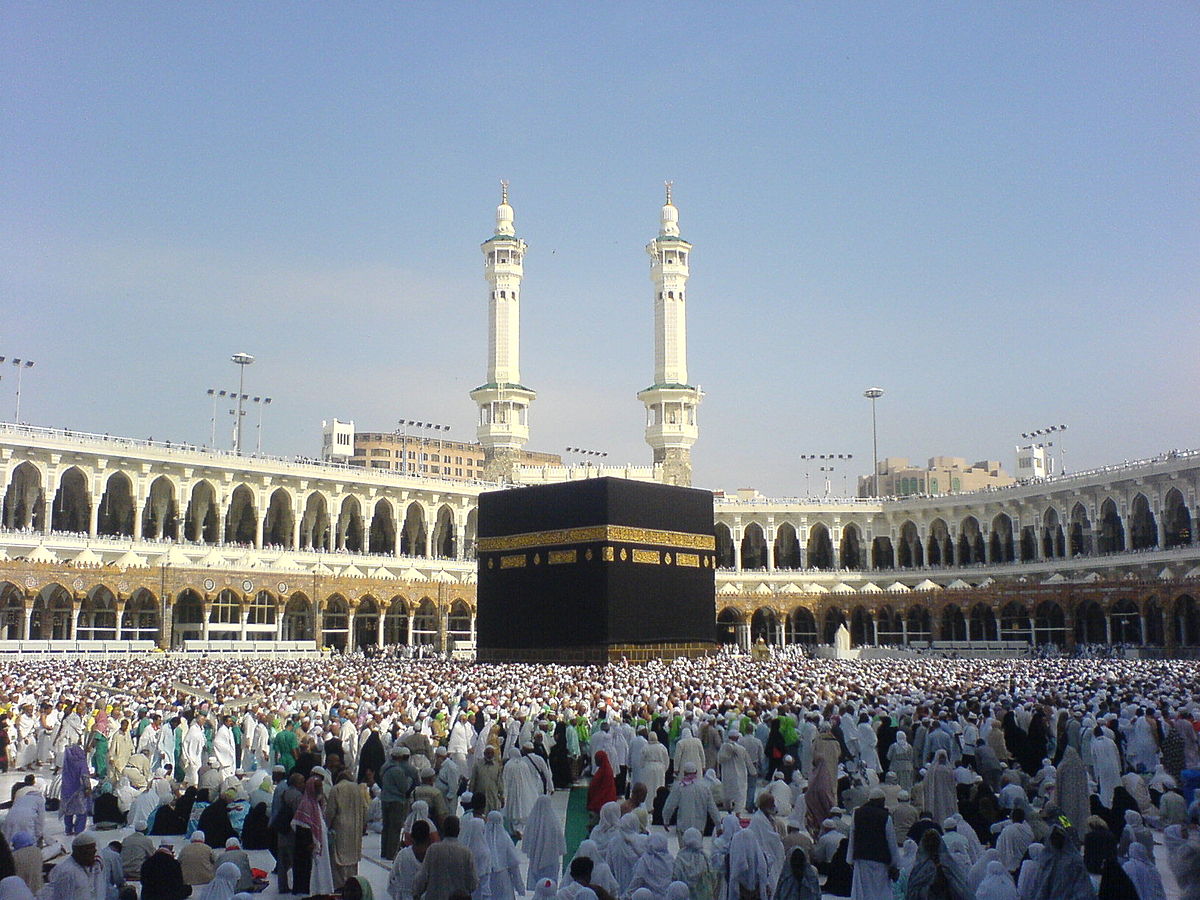
Photo by Muhammad Mahdi Karim
at English Wikipedia,
released under CC BY-SA License
Leftist Movements and Religion: Islam
Islam and Leftist Revolution
Today, the Socialist, ecological, feminist society of Revolutionary Rojava is the greatest example of the success of a bottom-up, libertarian-socialist society — and the great vast majority of its people are Muslims. All across the planet, just like Christians, Hindus, or any other religion, most Muslims are peaceful people who want to want to be good believers when at their temple, but also want to be good neighbors when in the neighborhood. Unfortunately, like all religions, this culture is dotted with humanitarian abuses, such as the severing of limbs of thieves under Sharia, the removing of sexual organs of girls at a young age to prevent adultery, and the low status of woman which often results in domestic abuse (though this latter issue is arguably on a nation-by-nation basis, with conservative governments being worse).
• 1853 — Extracts from the New York Tribune on the Crimean War — Karl Marx, Frederick Engels
• 1922 — Communism and Pan-Islamism — Tan Malaka
• 1922 — Speech in Discussion of Executive Committee Report — Tan Malaka
• 1922 — Discussion on the Report of the Executive — Tan Malaka
• 1939 — Historical Role of Islam: An Essay on Islamic Culture — M.N. Roy
• 1972 — Islamology — Dr. Ali Shariati
• 1979 — Islam and Revolution — Phil Marfleet
• 1979 — CPL: From Stalin to Allah — Spartacist Canada
• 1979 — Military Terror, Islamic Reaction, IMF Austerity — Workers Vanguard
• 1979 — Behind the “Islamic revolution” lies the counter revolution — In Struggle!
• 1980 — Islamic movement: blow to imperialism — Encyclopedia of Anti-Revisionism On-Line
• 1980 — Who are the Afghan guerrillas? — Encyclopedia of Anti-Revisionism On-Line
• 1981 — Afghanistan impasse — Jonathan Neale
• 1983 — War in Lebanon – class unity the key — Peter Hadden
• 1990 — Anti-communism Reaps the Islamic Whirlwind — Shahrzad Azad
• 1990 — Salman Rushdie: Off-target anger — Gareth Jenkins
• 1994 — The Prophet And The Proletariat — Chris Harman
• 1994 — Islamism: An Analysis — Chris Harman
• 1994 — Double Standards — Sharon Smith
• 1996 — Islam, Empire & Revolution: Class War, Not Holy War! — International Bolshevik Tendency
• 1997 — Islam, Children’s Rights, and the Hijab-gate of Rah-e-Kargar — Mansoor Hekmat
• 1999 — Islam and De-Islamisation — Mansoor Hekmat
• 2000 — June 20, 1981: One of the Greatest Crimes of the 20th Century — Mansoor Hekmat
• 2001 — The Rise and Fall of Political Islam — Mansoor Hekmat
• 2001 — Islamic Republic without Khatami — Mansoor Hekmat
• 2002 — Militant Islam in Central Asia — Dianne Feeley
• 2002 — Redrawing the political map: Nationalism, Islamism and socialism in the Middle East — Anne Alexander
• 2003 — Global and local echoes of the anti-war movement: A British Muslim perspective — Salma Yaqoob
• 2004 — Islam through the looking-glass — Anne Alexander
• 2004 — The hijab, racism and the state — Antoine Boulangé
• 2005 — Contested values — Chris Harman
• 2005 — Are these uprisings genuine revolts? — Chris Harman
• 2006 — The Bolsheviks and Islam — Dave Crouch
• 2006 — Islam and the Enlightenment — Neil Davidson
• 2006 — Between ritual and revolt — Chris Harman
• 2006 — Crusade and jihad in the medieval Middle East — Neil Faulkner
• 2006 — Suez and the high tide of Arab nationalism — Anne Alexander
• 2009 — Imperialism, Religion And Class In Swat — Sartaj Khan
• 2009 — Against the Politics of Tolerance: Islam, Sexuality and Belonging in the Netherlands — Paul Mepschen
• 2011 — The Attack on American Muslims — Malik Miah
• 2011 — ‘Democracy is not given, it is taken’ — Bassem Chit
• 2011 — The Flight of the Intellectuals?: A Look at Paul Berman’s Latest Book — Andrew Coates
• 2012 — United National Antiwar Coalition (UNAC) Calls for Actions Against U.S. Wars Abroad and at Home October 5-7! — Socialist Viewpoint
• 2013 — The Persecution of Lynne Stewart — Chris Hedges
• 2014 — How did the sectarian nightmare come true in Syria and Iraq? — Bassem Chit

Photo of Indonesian laborer,
photo by christopher sutherland,
released under CC BY License
Islam and Indonesia
Islam in Indonesia is different from every other place in the world. The great majority of the Muslim population belong to the abangan following, treats most of the commandments of Islam (particularly the five-daily-prayers commandment) to be optional, and most of them essentially unnecessary. In contrast to the abangan are the santri, who dutifully listen for orders from Arab monarchies and caliphates, pray five times a day, and avow a hateful vengeance against the abangan. In Indonesian and Malaysian Communist Revolutions, the abangan were almost always entirely on the side of the Communists, with the santri always opposed. More human beings were executed by reactionary, anti-Communist forces in Indonesia (tens of millions) than in any other anti-Communist suppression in human history.
• 1922 — Komunisme dan Pan-Islamisme — Tan Malaka
• 1925 — Islamism and Communism — Haji Misbach
• 1926 — The class struggle element in the liberation struggle of the Indonesian people — Henk Sneevliet
• 1966 — Indonesian Communism: The First Stage — Martin Glaberman
• 1999 — Race and Politics: Indonesia’s Ethnic Conflicts — Malik Miah
• 2000 — The Politics of Islam, Indonesia’s Ruling Elite and Democracy — Malik Miah
• 2001 — Indonesia: The Old Order Reviving — Malik Miah
Islam and Terrorism
• 1994 — Islamic Terrorism — Mansoor Hekmat
• 2009 — Smoke ’Em Out, Freedom Of Speech Be Damned — Lenore Daniels
• 2011 — Ten Years On: The Historical Significance of Al Qaeda — Paul Flewers
Islam and Sri Lanka
• 1996 — The IMF Restructures Sri Lanka — D.A. Jawardana
• 2009 — Sri Lanka: Behind the Massacre — an interview with Ashok Kumar
Islam and Algeria
• 1945 — Common Declaration of the Socialist and Communist Parties of Algiers — Munoz, Dupoch
• 1956 — Ali-la-Pointe — Saadi Yacef
• 2007 — Open Letter from Henri Maillot — El Watan
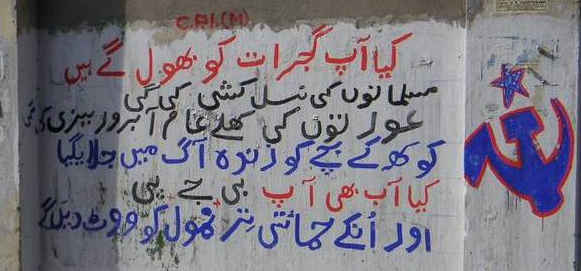
Photo by Soman,
released under Gnu Free Documentation License
Islamic, Communist Governments
• 1964 — The Case of Sultan-Galiyev (Report #3) — Marxist-Leninist Research Bureau
• 1968 — Theses of the East Bengal Workers Movement — Siraj Sikder
• 1972 — Heroic People of East Bengal, Our Struggle Has Not Yet Finished: Carry on the Great Struggle to Complete the Unfinished National Democratic Revolution of East Bengal — Siraj Sikder
• 1989 — RCPB(ML) wants to outlaw religious blasphemy — The Supplement
• 1990 — The Crisis in the Caucasus — Ronald Suny
• 1997 — Muslims should align themselves with the Left — Vinod Mishra
Islamic, Reactionary Governments
Note: Normally Iran would be here, but, it's so massive that it gets its own section.
• 1889 — The Modern Revolution in Persia — J.S. Stuart Glennie
• 1909 — Revolution and Counter Revolution in Turkey — Christian Rakovsky
• 1980 — The Invasion of the Iraqi Regime and Our Tasks — Mansoor Hekmat
• 1982 — The 1976 Lebanese civil war — Daniel Bensaid
• 2004 — Naming the Darfur Crisis — Mahmood Mamdani
• 2013 — The Fall of Morsi — Hannah Elsisi
• 2017 — Obama’s Muslim-Ban List — Sarah Harvard
• 2017 — The Genocide of the Rohingya: Big oil, failed democracy and false prophets — Ramzy Baroud
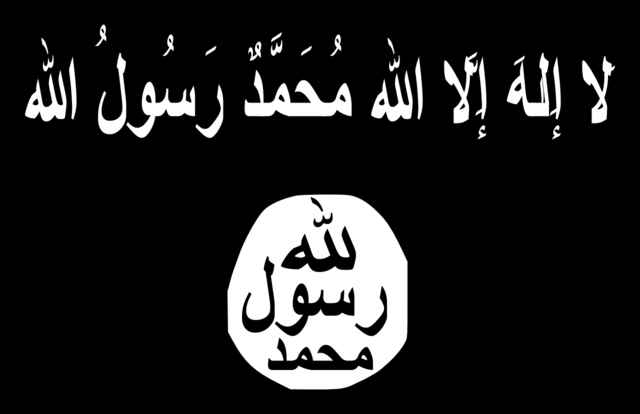
Photo by TRAJAN 117,
released under CC BY-SA License
The Islamic State
• 2001 — The Obvious Lessons of Berlin — Mansoor Hekmat
• 2014 — From Sykes-Picot to "Islamic State": Imperialism's Bloody Wreckage — Yassamine Mather
• 2015 — On the Islamic State — Italian Marxist-Leninist Party (PMLI)
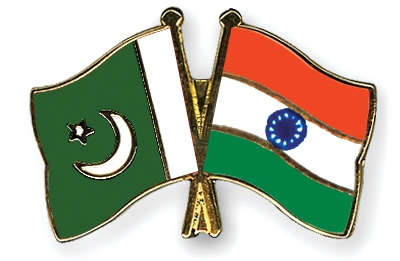
Photo by Global Panorama,
released under CC BY-SA License
India, Pakistan, and the Hindu-Muslim Conflict
• 1940 — Notes on Indian History — Karl Marx
• 1941 — Thoughts on Pakistan — B. R. Ambedkar
• 1943 — Pakistan and National Unity — G. Adikari
• 1943 — On Pakistan and National Unity — Resolution of Communist Party of India
• 1944 — The Famine in India: The Famine in India — S. Krishna Menon
• 1944 — The August 1942 Struggle — Rupsingh
• 1945 — Pakistan or Partition of India — B. R. Ambedkar
• 1946 — The World's Largest Question — Wilfred Burchett
• 1946 — The Bourgeoisie Comes of Age in India: Exasperating Essays — D. D. Kosambi
• 1946 — The Politics of the Indian Bourgeoisie — Suren Morarji
• 1947 — June 3 Declaration — Bolshevik Party of India
• 1964 — On Communal Problems — Shibdas Ghosh
• 1965 — Neither India or Pakistan—For a Socialist Federation — Ted Grant
• 1965 — Indian High Noon — David Breen
• 1969 — Communist Party and the Problems of the Muslim Minority — M. Farooqi
• 1969 — Pakistan: Feb. 14 — Nigel Harris
• 1970 — Indian Summer — Nigel Harris
• 1985 — Thinking it over...: Divide and rule — Nigel Harris
• 1992 — On Communalism — Vinod Mishra
• 1993 — Exposing the Saffron Scheme : A Popular outline — Vinod Mishra
• 1993 — Whither Indian Muslims? — Vinod Mishra
• 1997 — The Muslim Question — Vinod Mishra
• 1997 — India: Imperialism, Partition and Resistance — Sam Ashman
• 1999 — India of My Dreams — Vinod Mishra
• 2002 — Pakistan from Pariah State to Partner — Tariq Amin
• 2002 — Communal War in Gujarat, India — Kunal Chattopadhyay
• 2003 — The Construction of Communalism in India — Sara Abraham interviews Dipak Malik
• 2004 — A New Chapter In The Resistance: World Social Forum 2004 – Mumbai, India — Chris Harman
• 2006 — Textbook Tempest in California: Who Speaks for Hinduism? — Purnima Bose
• 2006 — Pakistan: on the edge of instability — Geoff Brown
• 2008 — Descent into Chaos: The United States and the failure of nation building in Pakistan, Afghanistan and Central Asia — Peter Hadden
• 2009 — Crisis from Pakistan to Motown — Tariq Ali
• 2010 — Kashmir: A Brief Background — David Finkel for the ATC editors
• 2016 — Kashmir: A Time for Freedom — Angana Chatterji
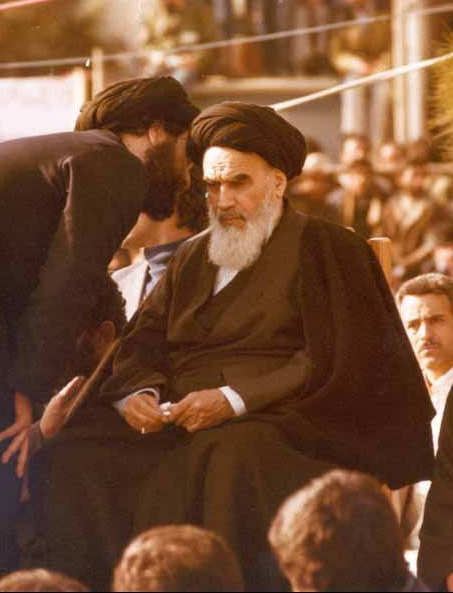
Photo by Mbazri,
released under CC BY License
Islamic Republic of Iran
• 1978 — Iranian Leftists Tail Islamic Reaction: Smash the Shah's Reign of Terror! — Young Spartacus
• 1979 — No To Khomeini's Islamic Reaction -- For Workers Revolution in Iran! — Workers Vanguard
• 1979 — No to the Veil! — Young Spartans
• 1979 — Iran: Holy War Against the Left — Workers Action
• 1979 — Iranian Left Under the Gun — Workers Vanguard
• 1979 — Workers Must Rule Iran: Down with the Ayatollahs! — Workers Vanguard
• 1979 — Who are the Shiites? — Encyclopedia of anti-Revisionism On-Line
• 1979 — For Workers Revolution to Defeat Islamic Reaction! — Workers Vanguard
• 1979 — For Workers Revolution to Overthrow the Shah! — Young Spartans
• 1979 — Mullahs' Left-Wing Apostles Paved the Way for Islamic Reaction — Young Spartans
• 1980 — Islamic Thugs on Bloody Rampage — Australasian Spartacist
• 1980 — Documents of the Iranian Revolutionary Movement — Sojourner Truth
• 1981 — The Iranian Revolution, Its Aftermath and the Left — L. Shirazi
• 1981 — The Counterrevolution in Iran — Sy Landy
• 1981 — What has happened to the Iranian revolution? — Raya Dunayevskaya
• 1981 — Iran at the Crossroads — Robert Goldstein
• 1981 — Iran: Revolution, War and Counterrevolution — Sy Landy
• 1989 — RCPB(ML) condemns Salman Rushdie — RCPB(ML)
• 1991 — Emergence of Iranian Workers — A. J.
• 1991 — Iran: The Oil Workers’ Strike — A. J.
• 1995 — The History of the Undefeated: A few words in commemoration of the 1979 Revolution — Mansoor Hekmat
• 1999 — Iran: Youth Protests and the Regime’s Crisis — A. J.
• 1999 — Iran will be the Scene of a Mass Anti-Islamic Offensive: Interview with with Radio Hambastegi — Mansoor Hekmat
• 2001 — ‘Election Day:’ A Day of Protest — Mansoor Hekmat
• 2001 — People Must Choose — Mansoor Hekmat
• 2001 — A Week of Anxiety — Mansoor Hekmat
• 2001 — New Year Message to the People of Iran — Mansoor Hekmat
• 2001 — We Represent the Majority: Interview on Iran after the ‘Elections’ — Mansoor Hekmat
• 2003 — Iran’s Islamic Republic at Breaking Point — A. J.
• 2006 — Peter Costello, Muslims and sharia law — Bob Gould
• 2007 — Defend Iran against U.S. Imperialism! — Worker-communist Party of Iran (WCPI)
• 2007 — Sanctions on Iran — A. J.
• 2009 — Rupture and revolt in Iran — Peyman Jafari
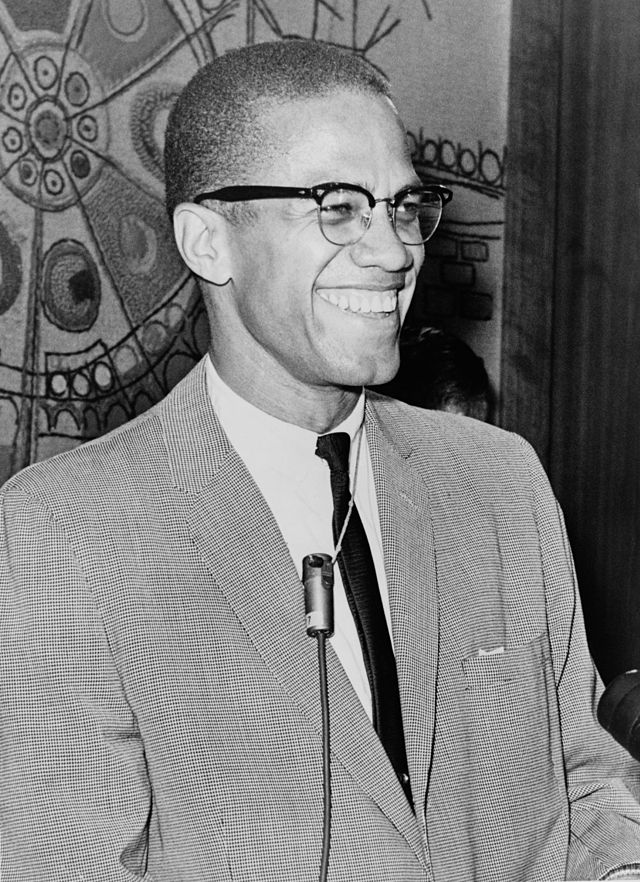
Photo by Ed Ford, World Telegram staff photographer,
released under Public Domain
Malcolm X and the Nation of Islam
Malcolm X was a powerful, Marxist, muslim leader of resistance to the exploitation of those suffering racial injustice and those suffering economic injustice. The Nation of Islam, which he served until a bitter disagreement, has tried to hold onto his legacy, while he distanced himself from them. More recently, in 2020, the Nation of Islam has allied itself with the Church of Scientology. Further reading: The Malcolm X Archive.
• 1964 — Progressive Labor Editorial Comment: Malcolm X and Black Nationalism — Encyclopedia of Anti-Revisionism On-Line
• 1964 — Text of Statement by Malcolm X — Malcolm X
• 1965 — Malcolm X: Voice of the Black Ghetto — Robert Vernon
• 1965 — Malcolm X: Martyr in the Cause of Freedom — Joseph Hansen
• 1967 — Malcolm X, Black Nationalism and Socialism — George Novack
• 1967 — Myths About Malcolm X: A Speech — Rev. Albert Cleage
• 1994 — The Malcolmized Moment — John Woodford
• 1995 — Farrakhan No Answer to Racism — Sy Landy
• 2006 — The Oratory of Malcolm X — Ursula McTaggart
• 2011 — Evolution not "Reinvention: Manning Marable's Malcolm X — Malik Miah
• 2016 — Muhammad Ali: Free Black Man — Malik Miah
• ~~ — Malcolm X and Martin Luther King Jr. — Roland Shephard
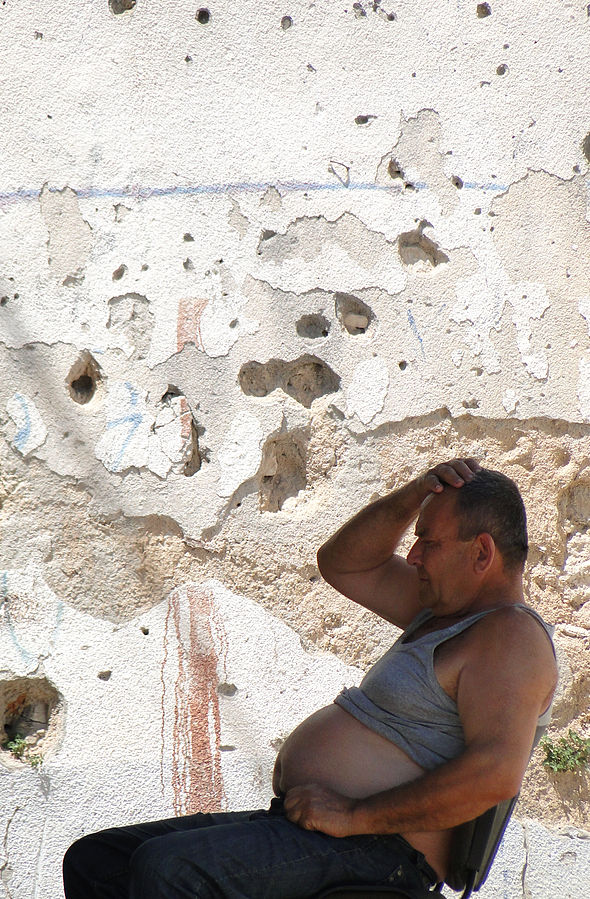
Photo of man in Bosnia near bullet-ridden building,
photo by Adam63,
released under CC BY-SA License
Bosnian War (1992-1995)
• 1944 — Tito and His People — Howard Fast
• 1992 — The Dissolution of Yugoslavia — Manuela Dobos
• 1992 — Yugoslavia – disintegration and slaughter — Peter Hadden
• 1992 — In Defense of Bosnia — Solidarity
• 1993 — Bosnia: Why We Defend the Muslims — Workers News
• 1993 — Letting Bosnia Die — Against the Current
• 1993 — Dialogue: The Issues in Bosnia — David Finkel
• 1993 — Yugoslavia: The Rise and Fall of Vance-Owen — Branka Magas
• 1994 — Nato’s new frontier — Chris Harman
• 1994 — Notes of the Month: Bosnia, Powers of partition — Socialist Review
• 1994 — Bomb warning — Chris Harman
• 1994 — Bosnia 1994 Armageddon — Geoff Ryan
• 1994 — How Milosevic's Serbia Became A Fascist State — Branka Magas
• 1994 — Bill Clinton and Genocide — Against the Current
• 1994 — Bosnia: Powder Keg of Europe — Workers Vanguard
• 1995 — No ‘liberation’ in Bosnia — Chris Harman
• 1995 — Arm Bosnia, Abolish NATO? — Eric Hamell
• 1995 — A Bosnian Activist's View — David Finkel interviews Nada Selimovic
• 1995 — The Balkan war: can there be peace? — Lindsey German
• 1995 — Bosnia’s Triumph and Western Treachery — Attila Hoare
• 1995 — Can Bosnia Resist? — Attila Hoare
• 1995 — On Bosnia and the Left — Attila Hoare
• 1995 — The left and the Balkan war — Duncan Blackie
• 1995 — Serbia's Flawed Liberal Opposition — Attila Hoare
• 1996 — Yugoslavia Dismembered — Kit Adam Wainer
• 1996 — The Empire and Left Illusions — Thomas Harrison
• 1996 — NATO’s Squalid Police Action — Against the Current
• 1997 — Serbia’s Democratic Uprising — Suzi Weissman interviews Borka Pavicevic
Arab Spring
• 2011 — The Unfolding Arab Uprisings — Suzi Weissman interviews Mark LeVine
• 2011 — Egypt and Beyond — Gilbert Achcar
• 2013 — On Egypt — Gilbert Achcar
• 2013 — Can People Get What They Want? — Gilbert Achcar
• 2013 — Egypt: ‘Do Not let the Army Fool You’ — MENA Solidarity Network
• 2014 — Sectarianism and the Arab revolutions — Bassem Chit
• 2015 — Bassem Chit’s critique of Arab nationalism — Simon Assaf
Palestine and Judaism / Israel / Zionism
Please see the Israel / Palestine Archive for a full discussion on this topic, which is too broad to cover here.
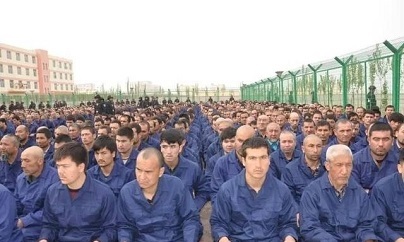
Photo from Wikipedia:
Uyghur "re-education camp" for Muslims
in Xinjiang, China.
Leftism and Religion on Social Issues: Tolerance
You can oppose the hierarchy of the established religion without discriminating or being intolerant of those who follow that religion.
Tolerance and Christians
• 1895 — Persecution of Christians in Russia — Leo Tolstoy
• 1897 — Letter requesting a Nobel Prize for the Doukhobors — Leo Tolstoy
• 1898 — The Emigration of the Doukhobors — Leo Tolstoy
Tolerance and Muslims (AKA: Islamophobia)
• 2002 — Racism: myths and realities — Hassan Mahamdallie
• 2005 — Votes of no confidence — Chris Harman
• 2005 — Muslims in Britain: After the London Bombs — Liam Mac Uaid
• 2005 — More than the mosque — Hassan Mahamdallie
• 2005 — Mirror images — Chris Harman
• 2006 — On the Racist Anti-Muslim Cartoons — League for the Revolutionary Power
• 2006 — Racism and the Islamic Veil — Workers Hammer
• 2009 — Racism and Islamophobia — Memet Uludag, John Molyneux
• 2011 — The Years of 9/11 — Against the Current Editors
• 2011 — Build Our Own Defence League to Stop EDL Thugs — SocialistRevolution.org
• 2012 — Murfreesboro Islamic Center Opens — Jase Short
• 2012 — Arabs and Muslims After 9/11 — Thomas Abowd
• 2015 — Bigotry in the Guise of Secularism — Carmen Teeple Hopkins
• 2015 — Happy Ramadan! — Memet Uludag
• 2017 — In Defense of Atheism: KPFA and the Dawkins Cancellation — Chris Kinder
Tolerance and Jews
• 1844 — On The Jewish Question — Karl Marx
• 1870 — The Crémieux Decree: Decree No. 136 of October 24, 1870 declaring the Jews natives to Algeria to be French citizens — Ad. Crémieux, L. Gambetta, Al. Glais-Bisoin, L. Fourichin
• 1894 — Anti-Judaism In Christianantiquity: From The Foundation Of Church Of Constantine — Bernard Lazare
• 1900 — The Social Conception of Judaism and the Jewish People — Bernard Lazare
• 1919 — The Makhnovists on the National and Jewish Questions — Peter Arshinov
• 1927 — To the Jews of All Countries — Nestor Makhno
• 1927 — The Makhnovshchina and Anti-Semitism — Nestor Makhno
• 1940 — Fascist ‘Christian Mobilizers’ Open Drive in New York City — Sam Marcy
• 1942 — The Jewish Question: A Marxist Interpretation — Abram Leon
• 1944 — On the Jews — Victor Serge
• 1964 — Judaism Without Embellishment — Jews in Eastern Europe
• 1983 — Anti-Semitism & the Beirut Pogrom — Fredy Perlman
Tolerance and Communist China
• 1952 — Talk With Tibetan Delegates — Mao Tse-tung
• 2001 — Falun Gong: Force for Counterrevolution in China — Workers Vanguard
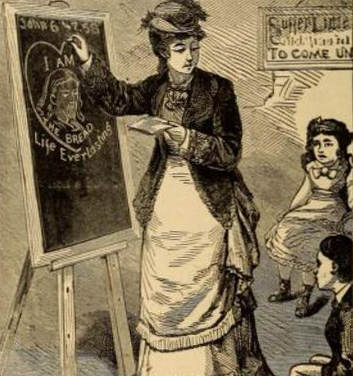
Photo under Public Domain.
Leftism and Religion on Social Issues: Education
Modern religion still exists because it can infect minds before they are well-developed, the way an adult wrestler can force a child into submission, or the way a college student can beat a kidnergartener at a spelling bee. The fight for a free education is the fight for freedom from religion.
Francisco Ferrer
Francisco Ferrer was an Anarchist educator in Spain who was executed by firing squad after a mock, show-trial. He was accused of organizing a rebellion against the government, during which hundreds of churches were burned. The actual cause of the rebellion was the church's undying support for the government's war in Morocco, with the initial fighting breaking out when drafted men were being loaded onto troop carriers.
• 1909 — The Assassination of Ferrer — Daniel De Leon
• 1911 — The Martyrdom of Ferrer — The Agitator
• 1913 — The Origins and Ideals of the Modern School — Francisco Ferrer
• 1917 — Francisco Ferrer and the Modern School — Emma Goldman
• Unknown — Francisco Ferrer — Voltairine de Cleyre
• Unknown — Modern Educational Reform — Voltairine de Cleyre
Eastern Orthodox Church
The Eastern Orthodox Church has long been the greatest supporter of Tsarist Russia, one of the largest, slave-holding empires in all of human history. When it has been allowed to direct schools, these schools have simply become indoctrination centers, with more focus on directing the social and economic activity of their followers than on their religious activity. This religion only gets extra attention here because it is the predominant religion of Russia, which is a historic hub of Marxism.
• 1902 — Russian Schools and the Holy Synod — Peter Kropotkin
• 1904 — What the Orthodox Religion Really Is — Leo Tolstoy
Leftism and Religion on Social Issues: Art and Literature
Photography
• 1980s — The Soviet Art of Photography: Religion — USSR
Poetry
• 1813 — Queen Mab: A Philosophical Poem (in 9 parts) — Percy Bysshe Shelley
• 1897 — The Gods and the People — Voltairine de Cleyre
• 1918 — Church Sociable — Jean Starr Untermeyer
• 1919 — Those Iron Gates of Prison — Kazi Nazrul Islam
• 2012 — Irish Marxist Review: Three Poems — Conor Kelly
• unknown — Communistic (Samyabadi) — Kazi Nazrul Islam
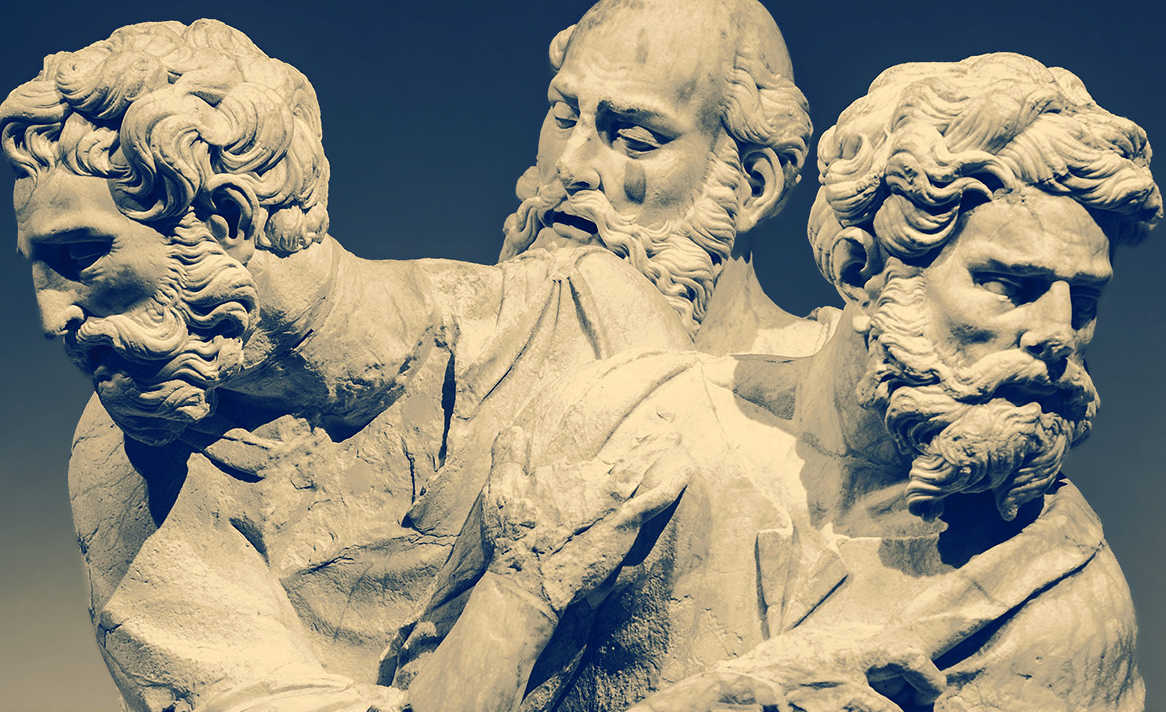
Photo by Vincent_AF,
released under CC BY-SA License
Leftism and Religion on Social Issues: Philosophy
The Enlightenment
The Enlightenment was a period in European history where humanity awoke to the great ideas of freedom, democracy, and economic prosperity. Naturally, it was also a great period for criticizing and questioning religion.
• 1513 — Concerning Ecclesiastical Principalities — Niccolo Machiavelli
• 1515 — Of the Religions of the Utopians — Thomas More
• 1728 — On the Vanity of Religions — Jean Meslier
• 1729 — Error, Illusion, and Imposture — Jean Meslier
• 1764 — The Abbot and the Rabbi — Baron d’Holbach
• 1769 — On Religious Cruelty — Baron d’Holbach
• 1770 — Thoughts on Religion — Denis Diderot
• 1770 — Critical History of Jesus Christ — Baron d’Holbach
• 1787 — God, Some Conversations — Johann Gottfried Herder
• 1790 — The Catechism of the Curé Meslier — Sylvain Maréchal
• 1793 — Religion is the Greatest Obstacle — Anarcharsis Cloots
• 1794 — The Age of Reason — Thomas Paine
• 1799 — The Dictionary of Ancient and Modern Atheists — Sylvain Maréchal
• 1799 — Preliminary discourse, or Answer to the question: What is an atheist? — Sylvain Maréchal
• 1888 — Thomas More and his Utopia — Karl Kautsky
• Unknown — Thomas Paine — Voltairine de Cleyre
Classical Philosophy
• 1841 — The Essence of Christianity — Ludwig Feuerbach
• 1845 — Theses On Feuerbach — Karl Marx
• 1851 — Lectures on the Essence of Religion — Ludwig Feuerbach
• 1886 — Ludwig Feuerbach and the End of Classical German Philosophy — Frederick Engels
• 1886 — The Religious Mood (From: "Beyond Good and Evil") — Friedrich Nietzsche
• 1909 — Conspectus of Feuerbach’s Book — Vladimir Lenin
Hegelianism
Hegel was an eighteenth-century philosopher whose writings influenced Marx.
• 1793 — On the Prospects for a Folk Religion — Georg Wilhelm Friedrich Hegel
• 1795 — The Positivity of the Christian Religion — Georg Wilhelm Friedrich Hegel
• 1798 — The Spirit of Christianity and its Fate — Georg Wilhelm Friedrich Hegel
• 1805 — The Philosophy of Spirit — Georg Wilhelm Friedrich Hegel
• 1820 — Introduction to the Philosophy of Religion — Georg Wilhelm Friedrich Hegel
• 1901 — Studies in Hegelian Cosmology — John McTaggart Ellis McTaggart
• 1977 — Phenomenology of Spirit — J. N. Findlay
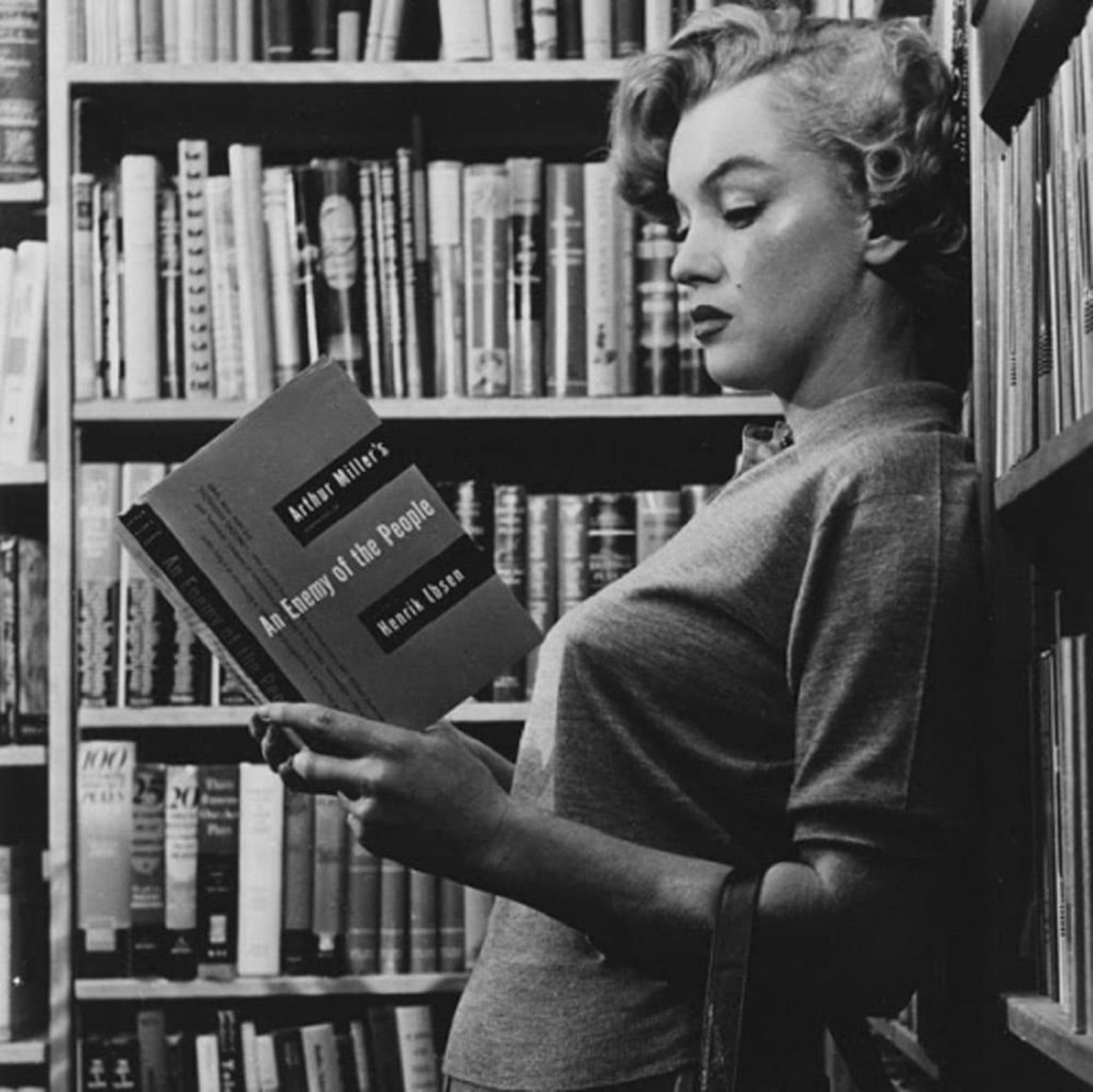
Photo by Antonio Marín Segovia,
released under CC BY-ND-NC License
Leftism and Religion on Social Issues: Feminism
Early and Modern Feminism
The edicts and rules of religion have always come down harshly against women, and so Feminists have made up a very special, important part of the Atheist movement.
• 1879 — Disruption of the Family — August Bebel
• 1904 — The Falling Birth-Rate — Dora B. Montefiore
• 1905 — The Religion of Women — Dora B. Montefiore
• 1990 — Is Operation Rescue Over? — Marie Laberge
India and Feminism
• 1995 — Constructing the Past in Contemporary India — Brian K. Smith
• 2001 — India’s Communalist Violence Against Women — Soma Marik
Islam and Feminism
• 1979 — Iranian Women Face Islamic Reaction — Journal of the Women's Commission of the Spartacist League
• 1999 — The Rebel Girl: A Question of Rape — Catherine Sameh
• 2001 — Fascism, Fundamentalism, and Patriarchy — Anuradha Gandhy
• 2001 — The Rebel Girl: The War, the Women, the West — Catherine Sameh
• 2002 — Gender and Identity in Pakistan — Shahnaz Rouse
• 2005 — Workers, women and the Islamic republic — Elaheh Rostami Povey
• 2012 — Arab and Arab American Feminist Narratives — Triana Kazaleh Sirdenis
• 2013 — Arab Uprising & Women's Rights: Lessons from Iran — Haideh Moghissi
• 2016 — Fatema Mernissi: A Pioneering Arab Muslim Feminist — Zakia Salime
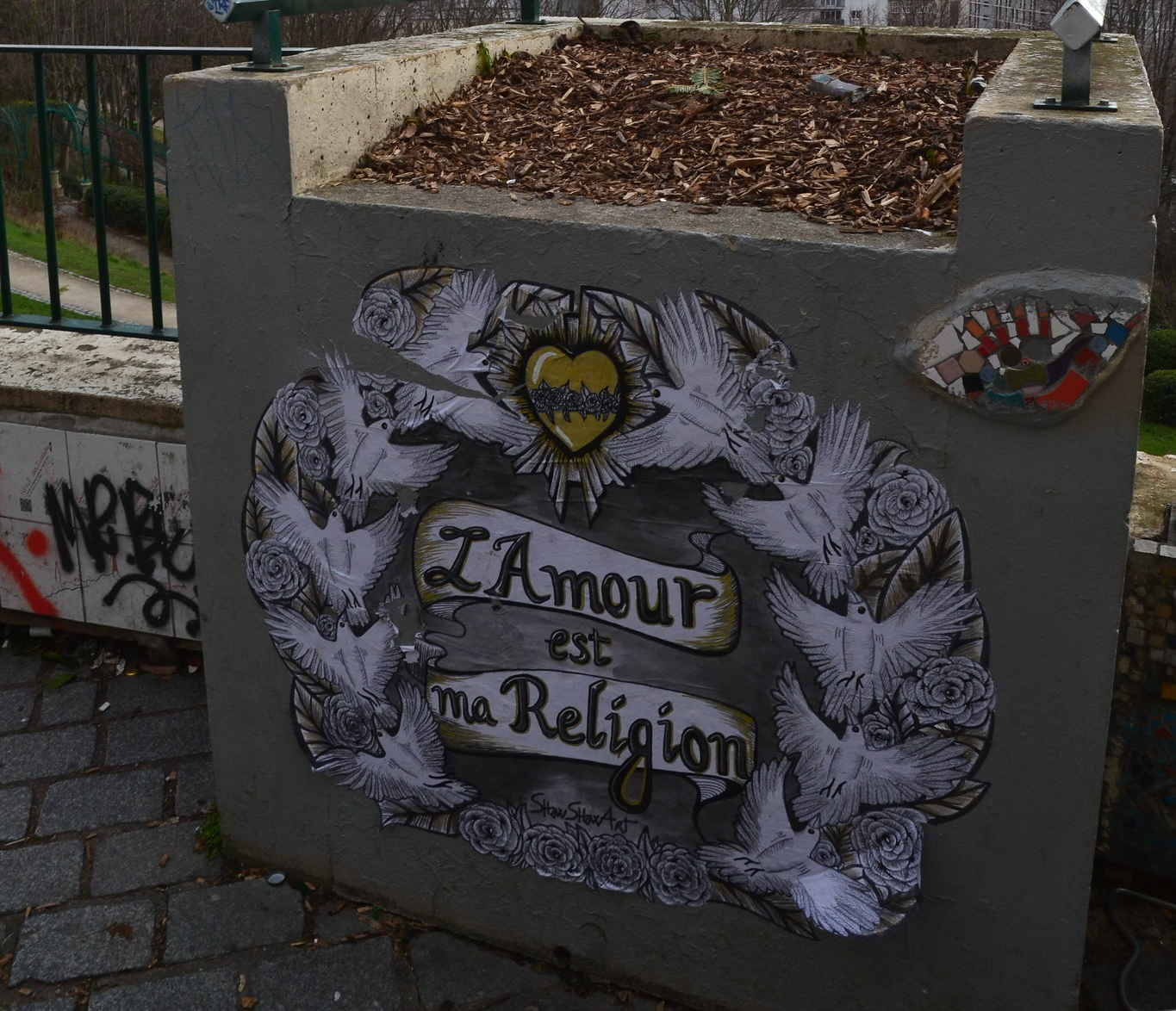
"My Religion is Love,"
Photo by Jeanne Menjoulet,
released under CC BY License
Leftism and Religion on Social Issues: Secularism
European Secularism
• 1801 — Epistle to the Ministers of all Religions — Sylvain Maréchal
• 1871 — Decree on the Separation of Church and State — The Paris Commune
• 1891 — Church and State — Leo Tolstoy
American Secularism
If you can't totally and completely abolish all religion, then everyone should have the right to throw it at full speed out of their front door and into the street. Secularism is the separation of religion and law, although since religion exists largely to justify law, this obviously doesn't work out very neat and cleanly in practice.
• 1949 — Cardinal Spellman Abuses Cry for Full Religious Freedom — Philip Coben
• 2004 — U.S. Law: Religious or Secular? — Jennifer Jopp
Soviet Secularism
• 1918 — Decree on Separation of Church and State — Sovnarkom
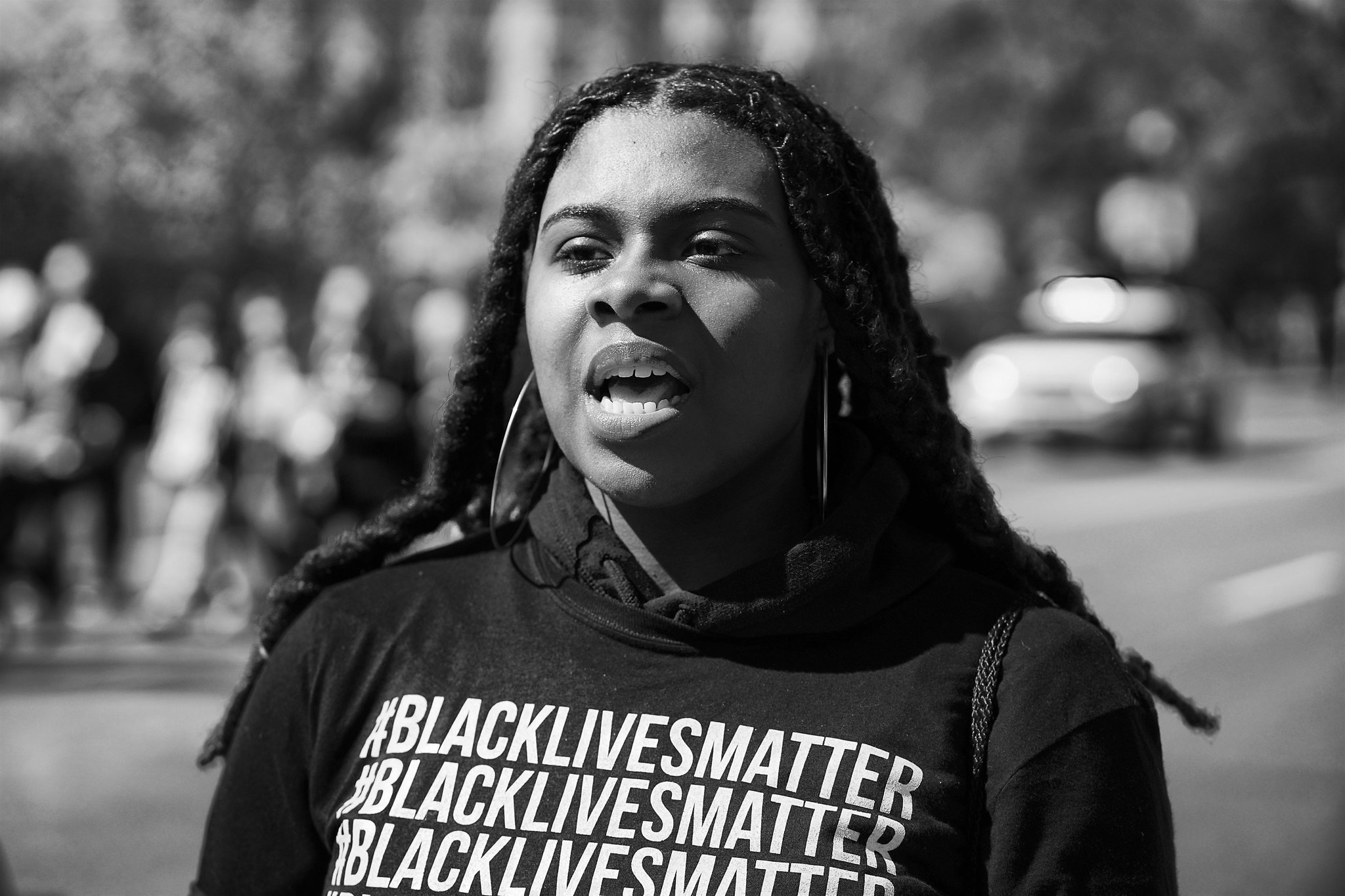
Photo by Miki Jourdan,
released under CC BY-NC-ND License
Race
• 1949 — Cardinal Spellman Does the KKK’s Work — Labor Action
• 1960 — Racism and Colonialism as Praxis and Process — Jean-Paul Sartre
• 1962 — Charge L.A. Cops Guilty in Shooting of Black Muslims — Lois Saunders
• 1995 — Black to basics — Talat Ahmed
• 2003 — Stop the War on Immigrants! — Proletarian Revolution
• 2004 — Black and White on the Inside — Christopher Phelps
• 2008 — Religion and the Rise of Labor and Black Detroit — Mark Higbee
• 2009 — Race, Politics and Christianity in America — Angela Dillard
• 2011 — Arab Detroit, Targeted Community — Frank Rashid
• 2016 — Bigotry vs. Black Lives, Muslims, Immigrants — Malik Miah

Photo by Zanaq,
released under CC BY-SA License
Science
In the 19th century, scientists were just beginning to systemize their tools for discovering truth, and many of the scientists came into open conflict with the established religions. The conflict was not necessarily social or economic, but it was religious -- the quest for who can determine the truth and what we are expected to believe.
• 1882 — Science and Religion — Edward Aveling
• 1882 — An Atheist on Tennyson’s Despair — Edward Aveling
• 1895 — Galileo: A Drama — Pierre-Joseph Proudhon
• 1900 — Socialism and Modern Science — Enrico Ferri
• 1935 — Science and the Supernatural — JBS Haldane
• 1982 — Our Celestial Visitor (The Flying Virgin And Space Age Astronomy) — Francis Ambrose Ridley